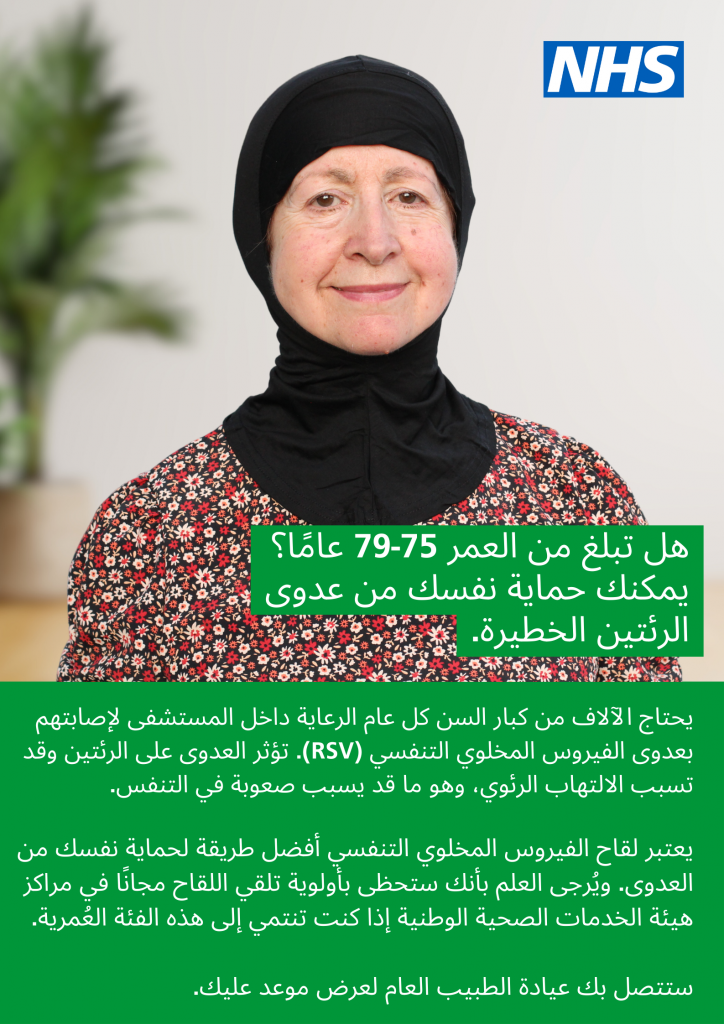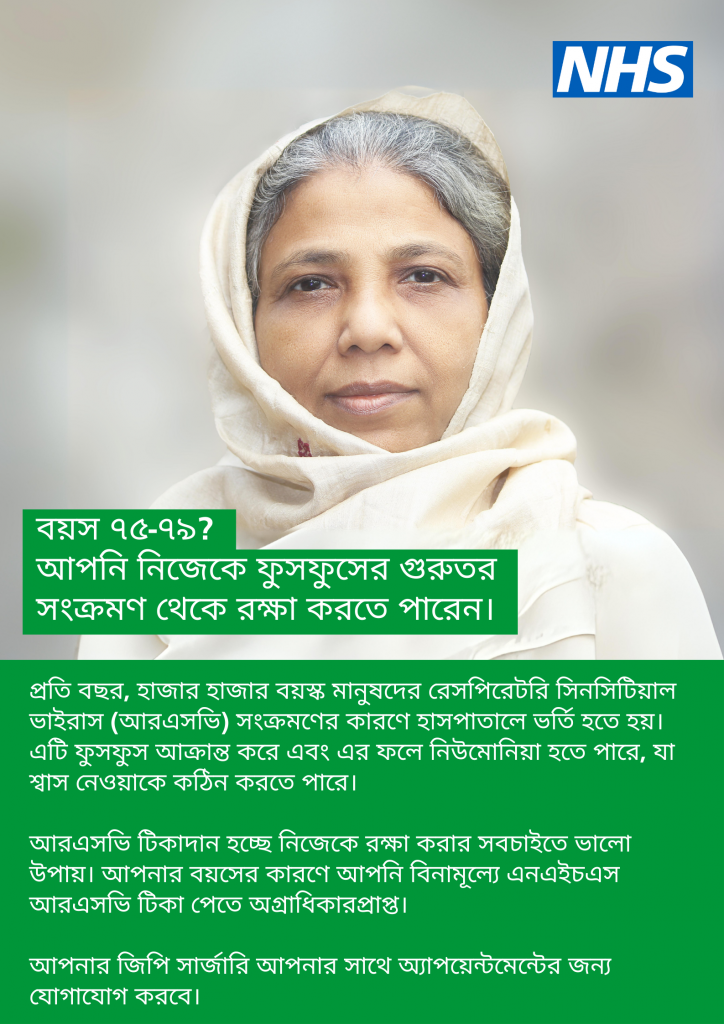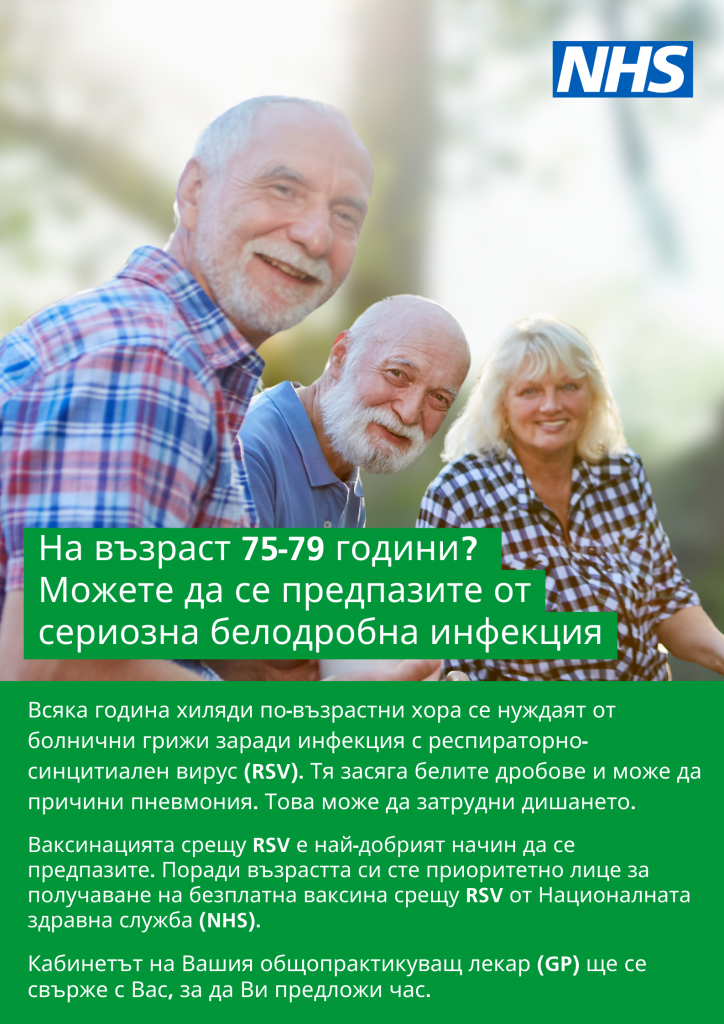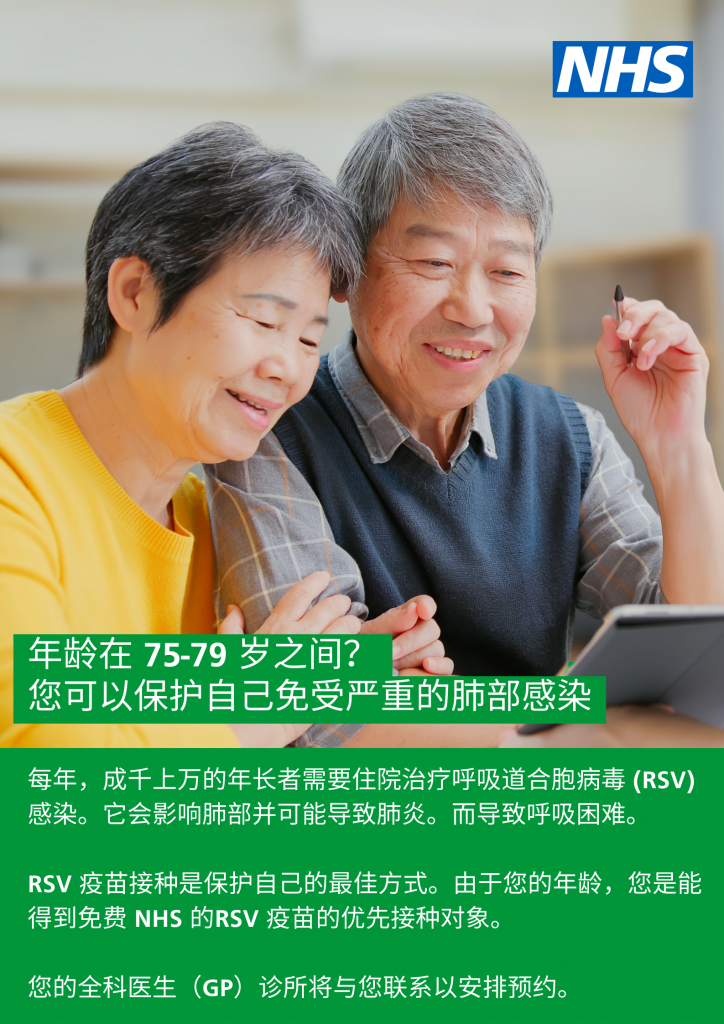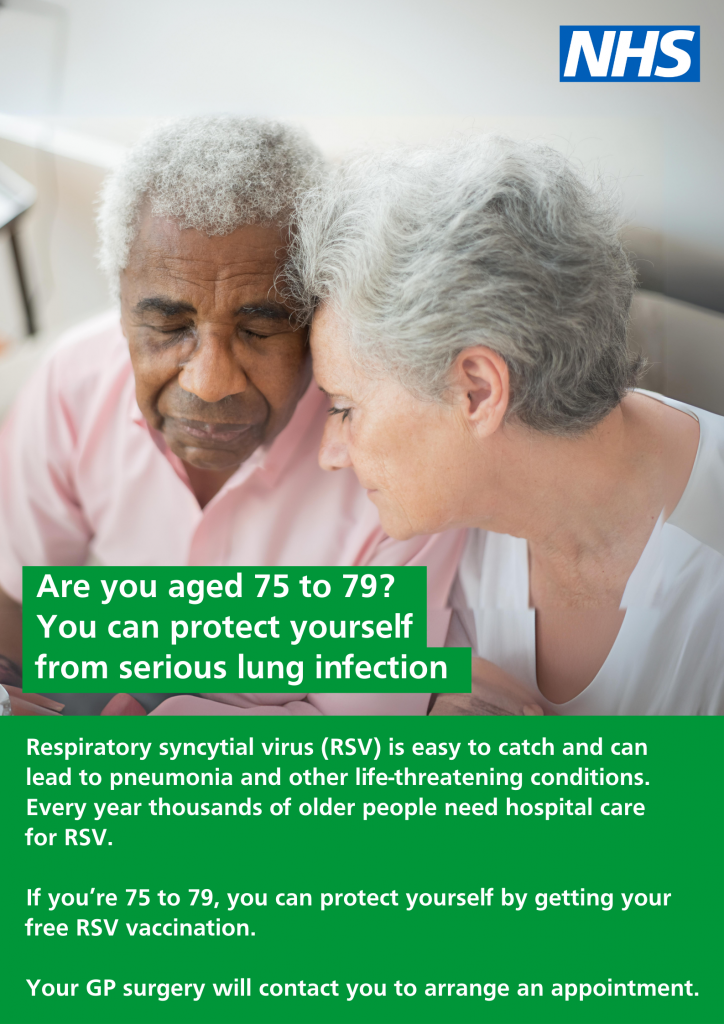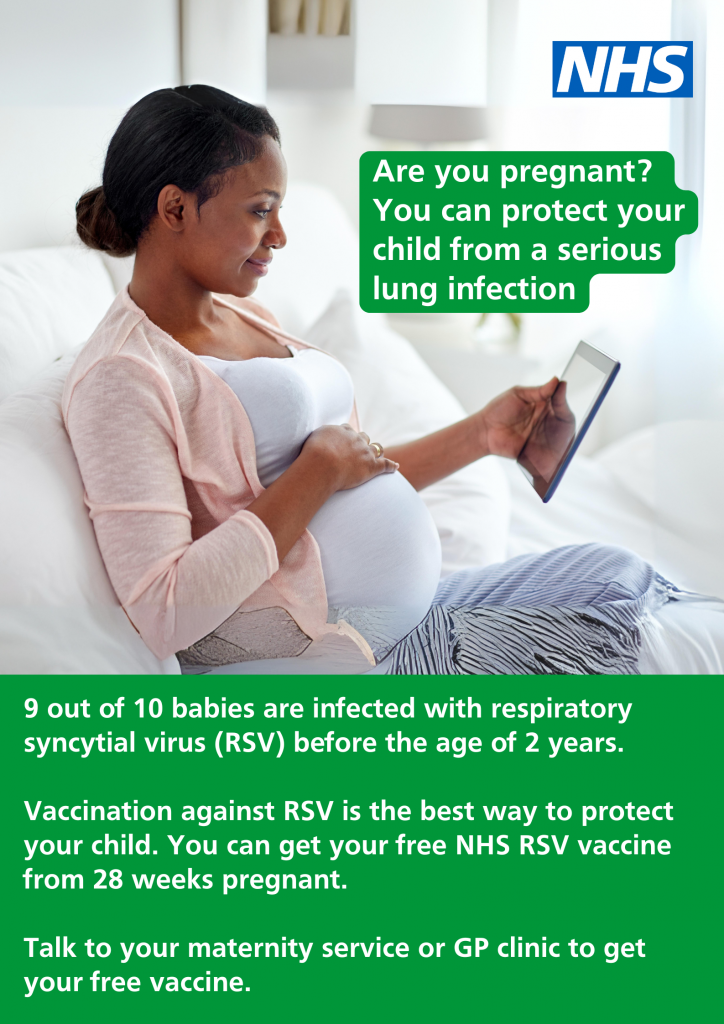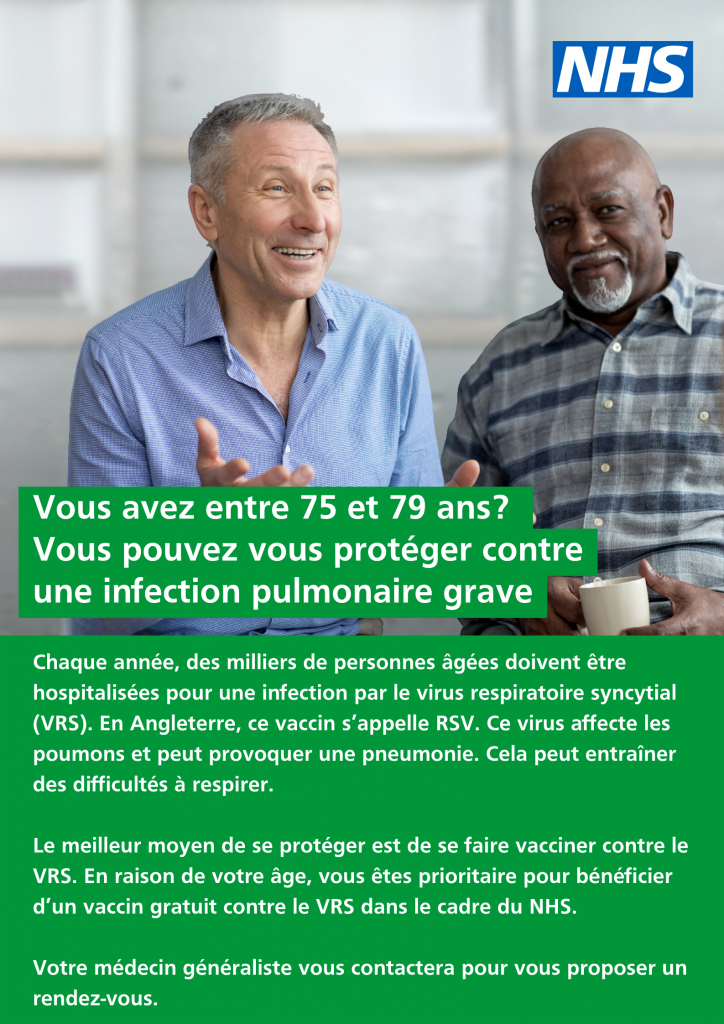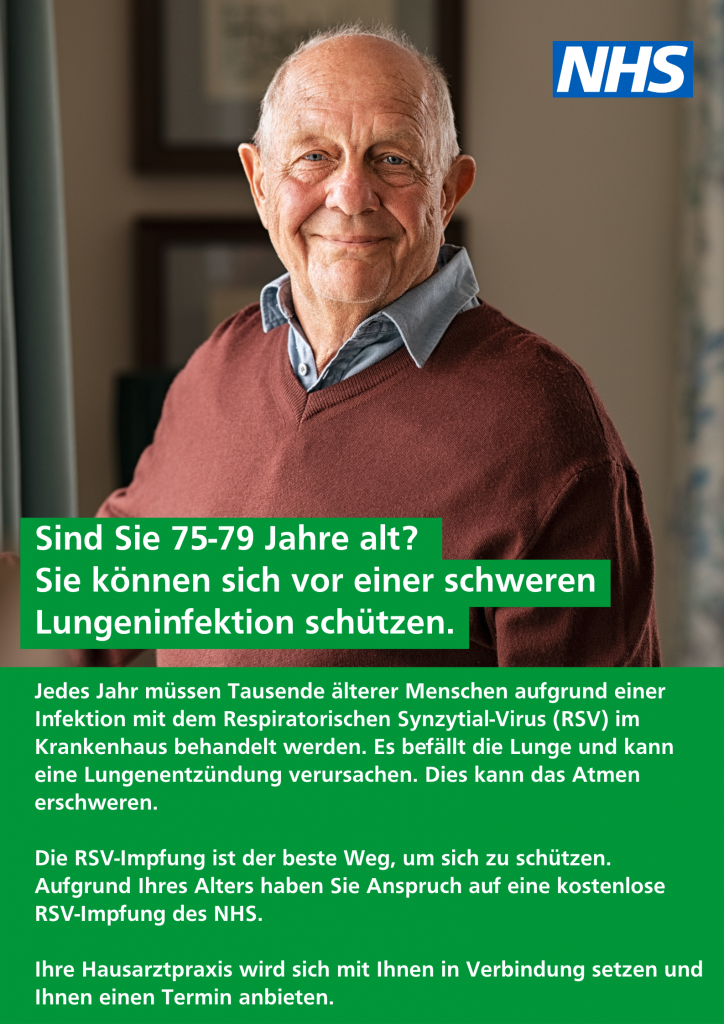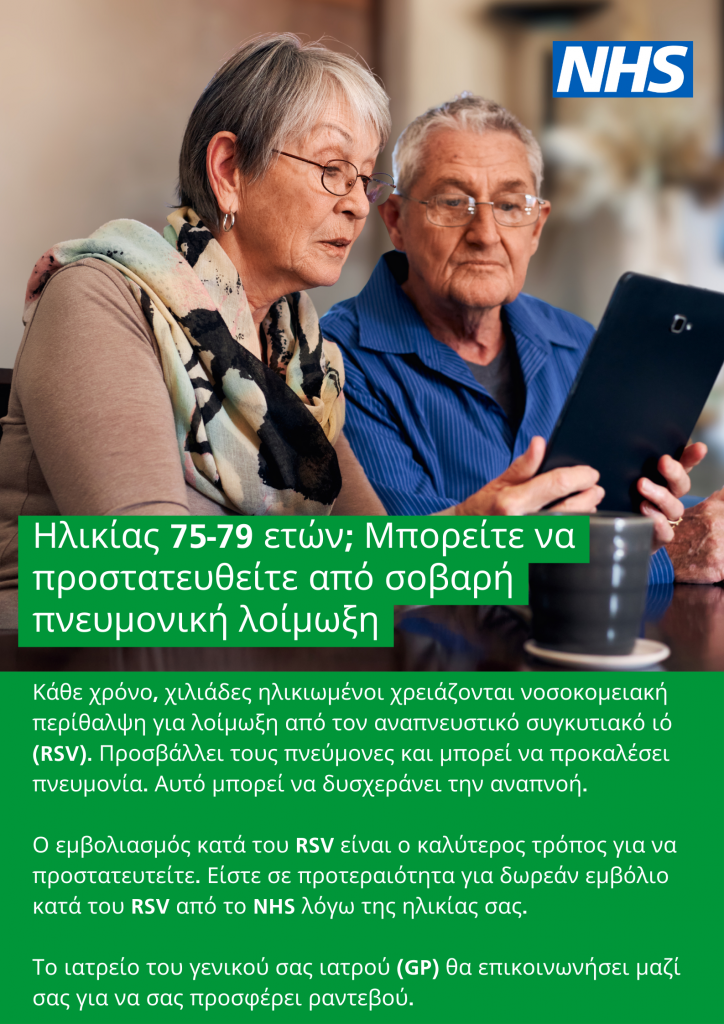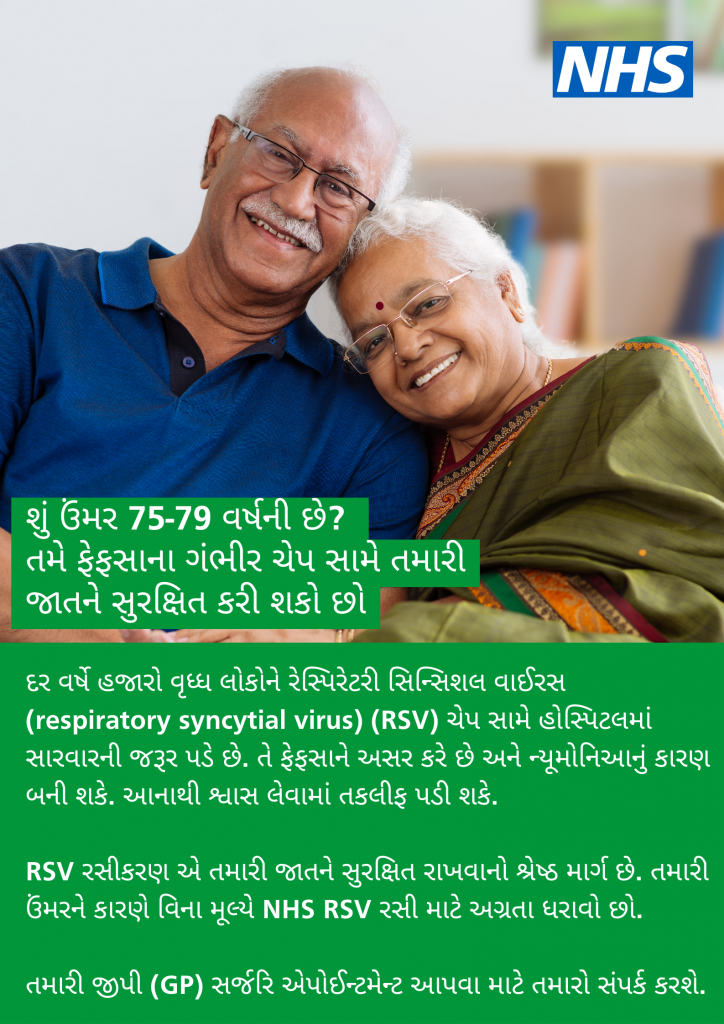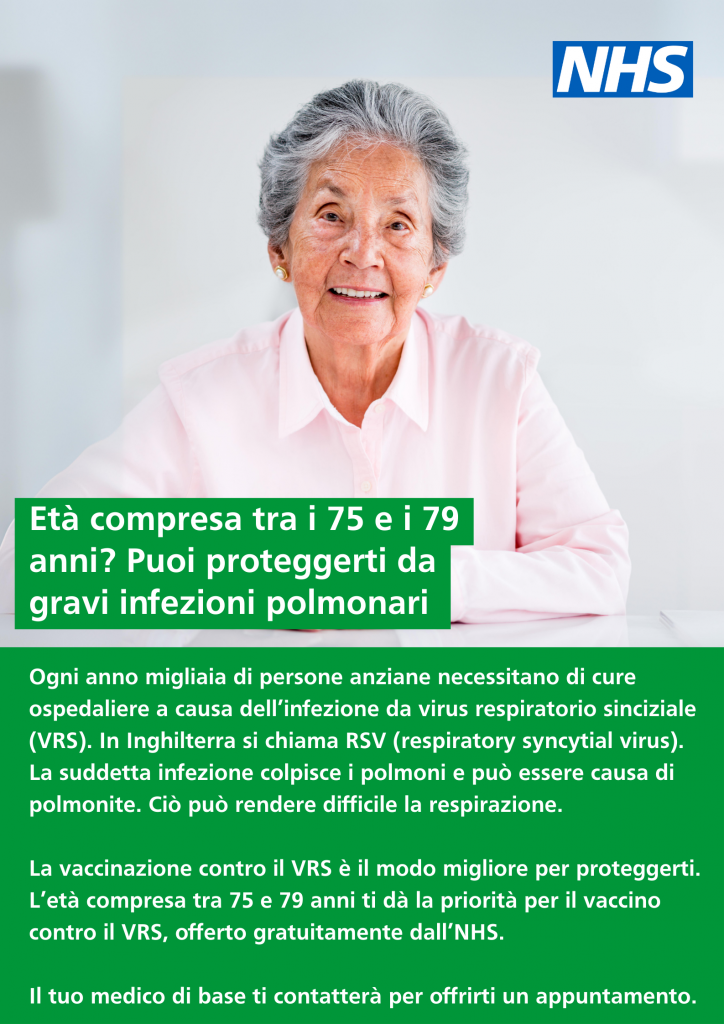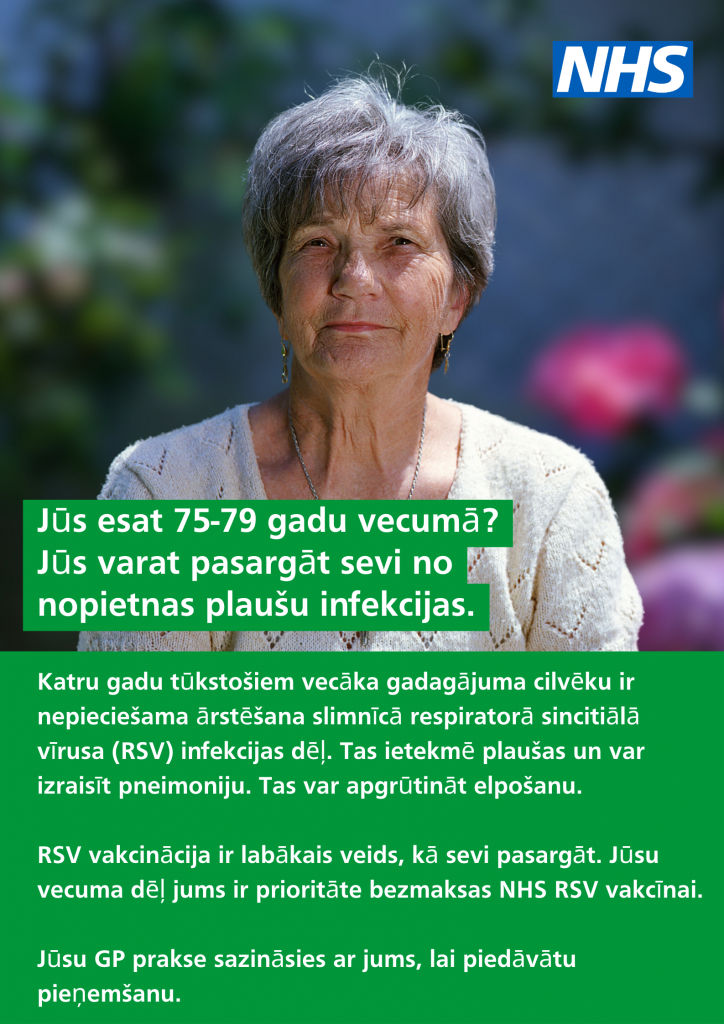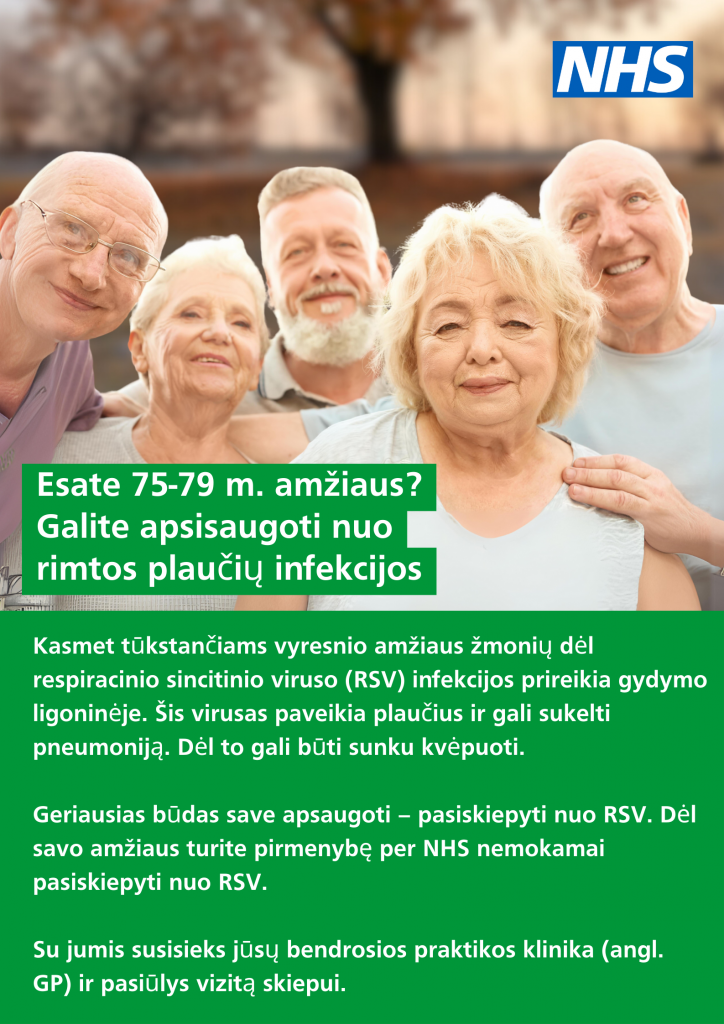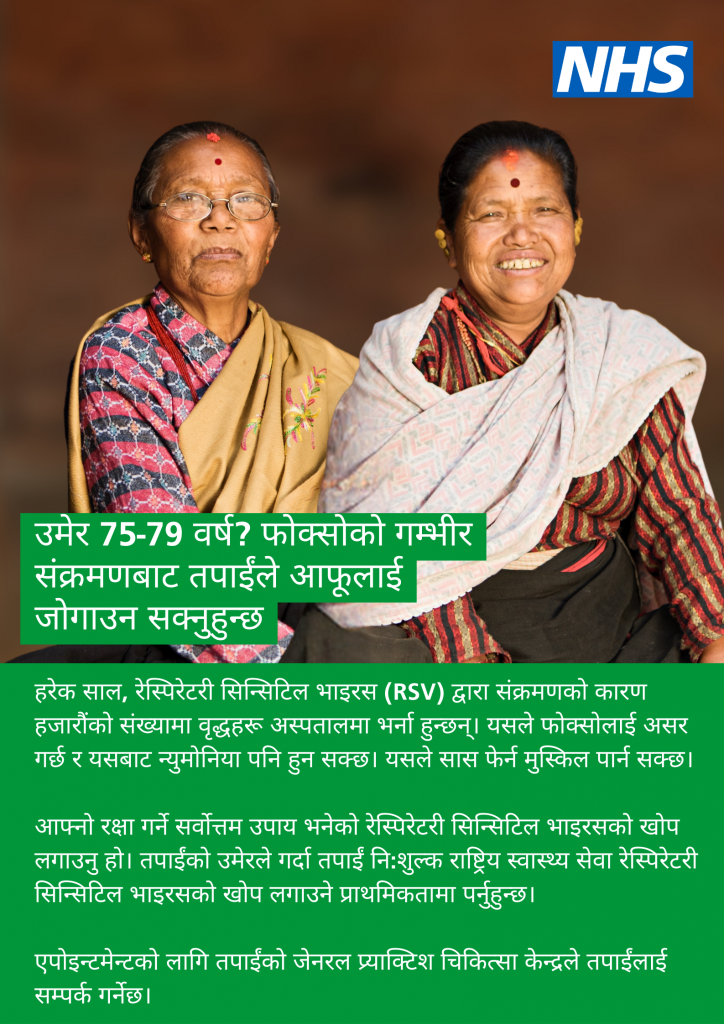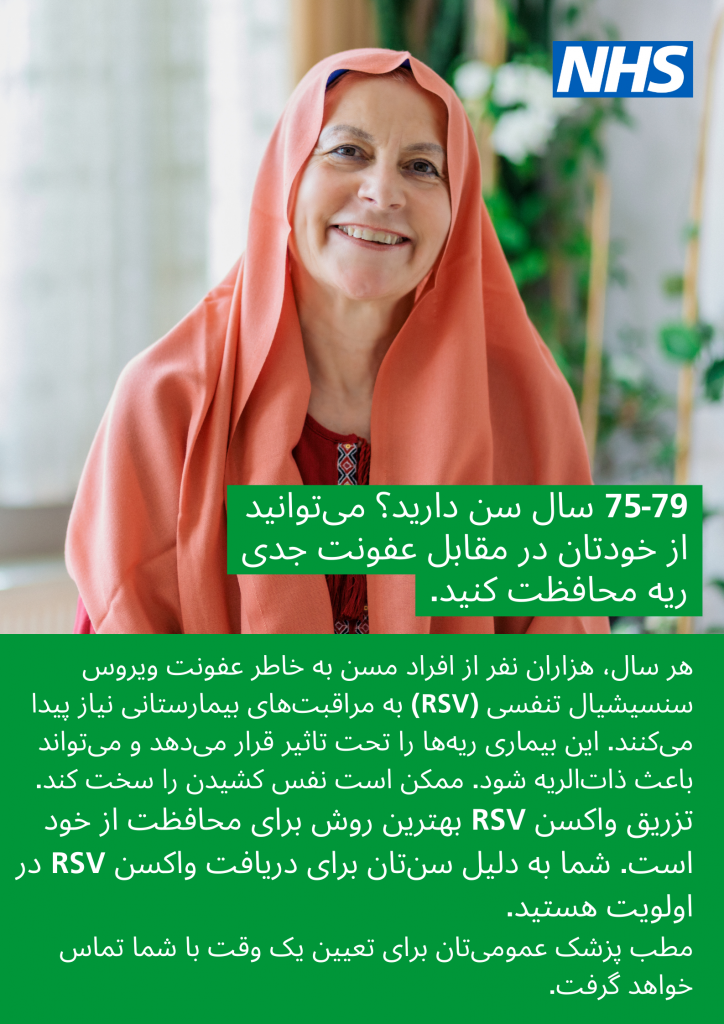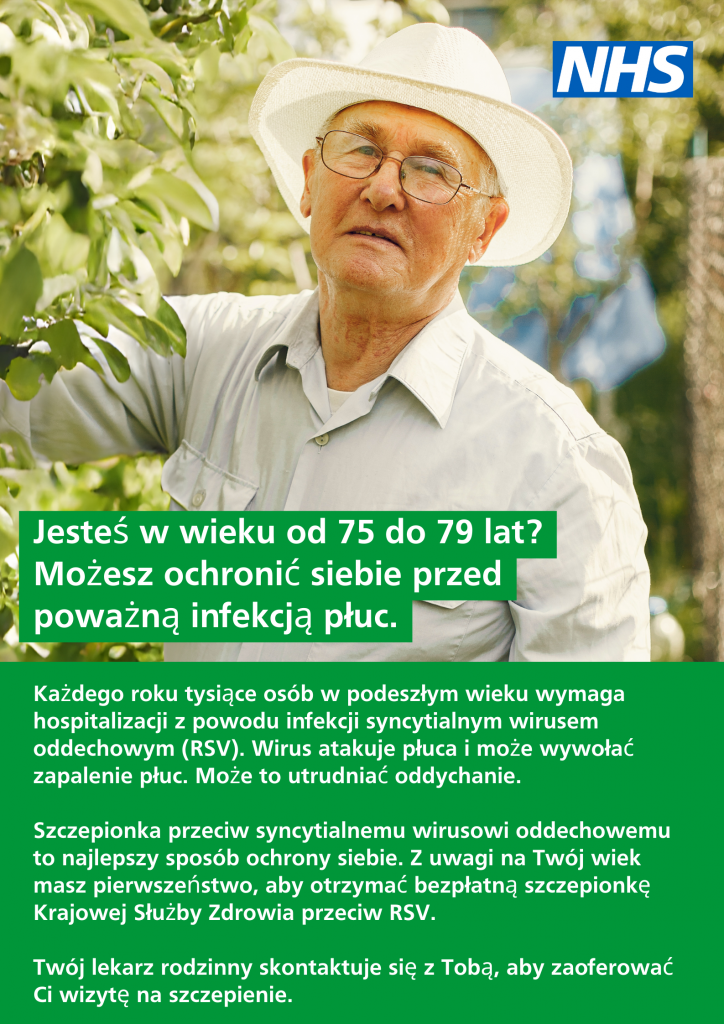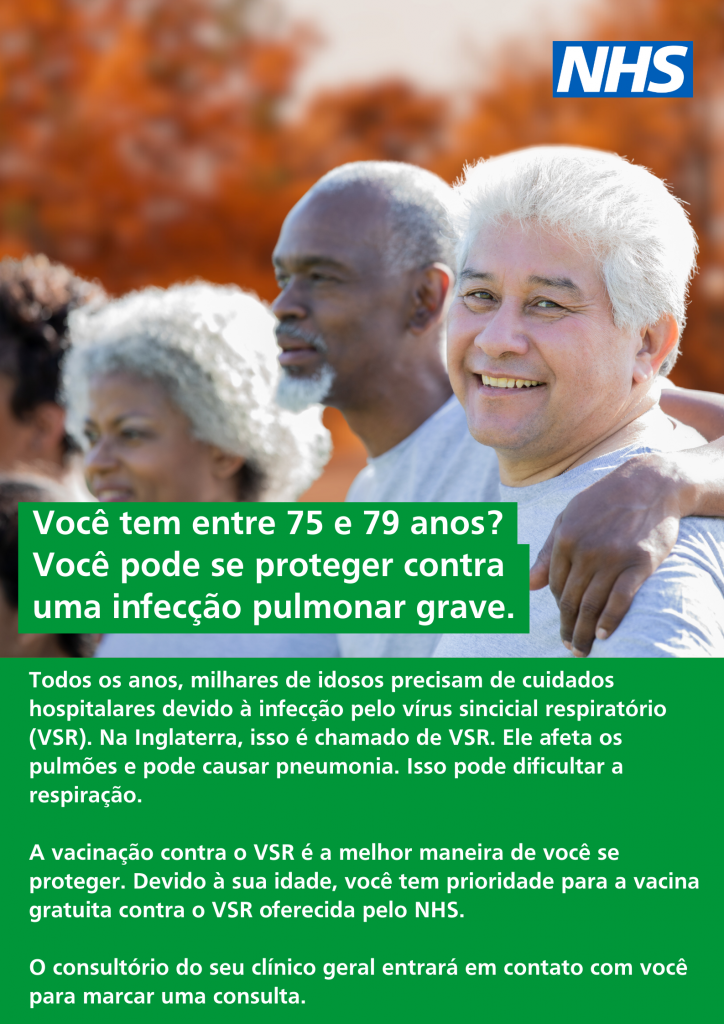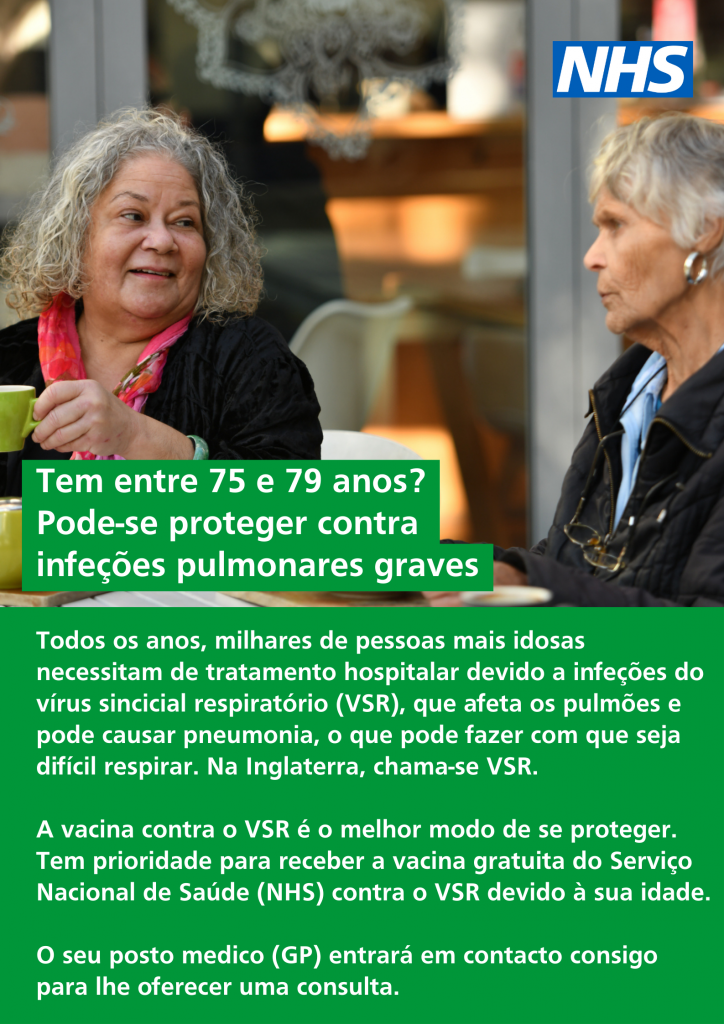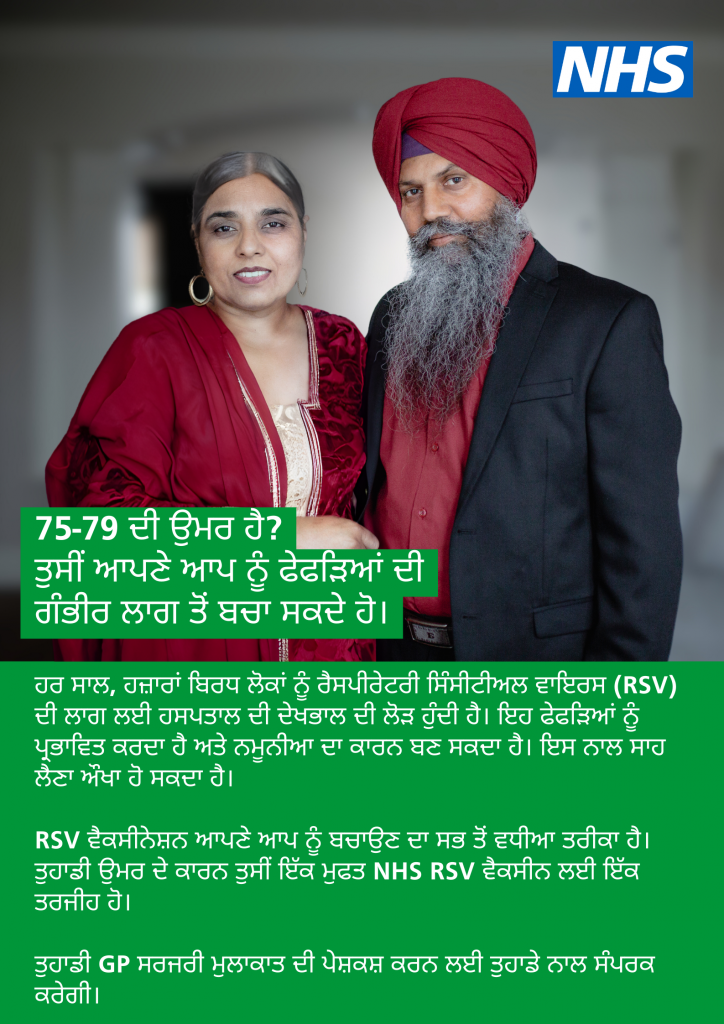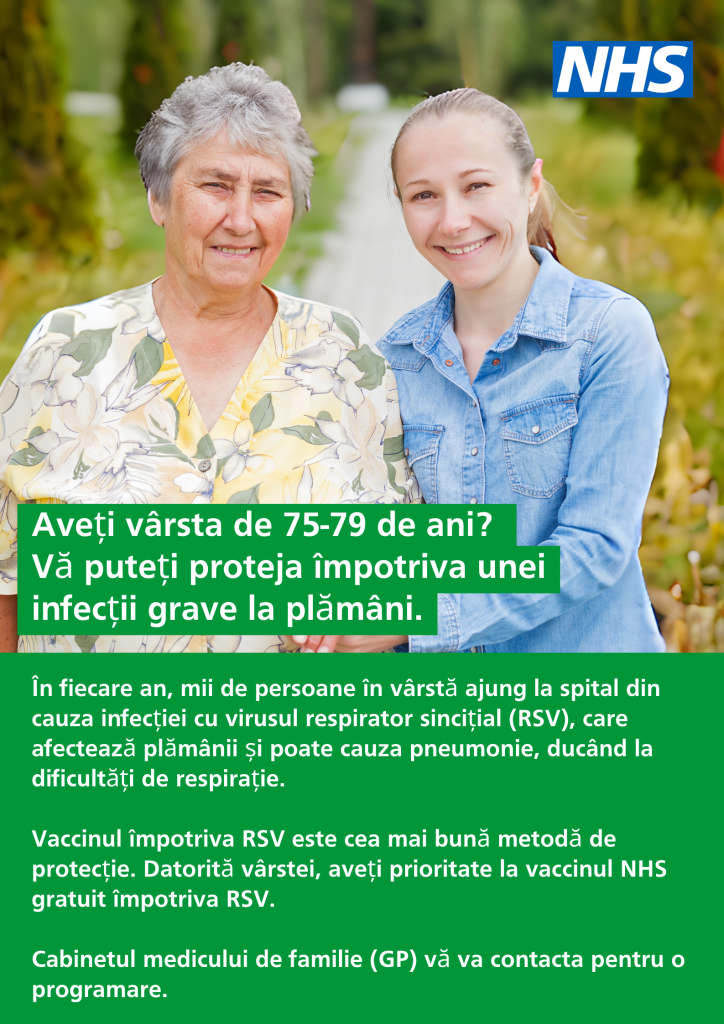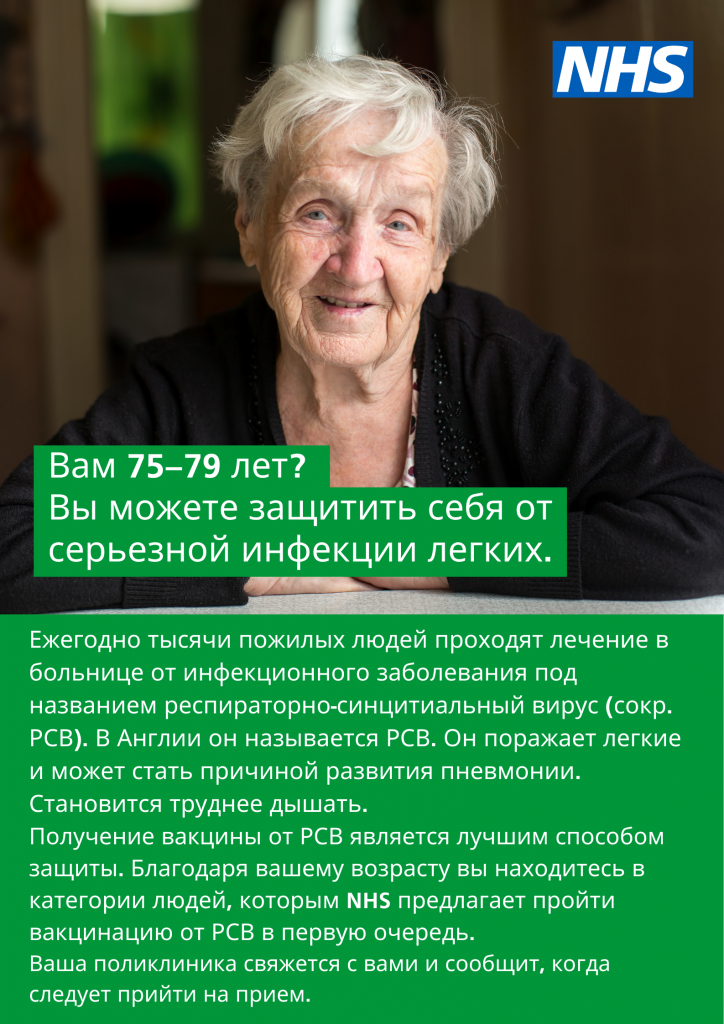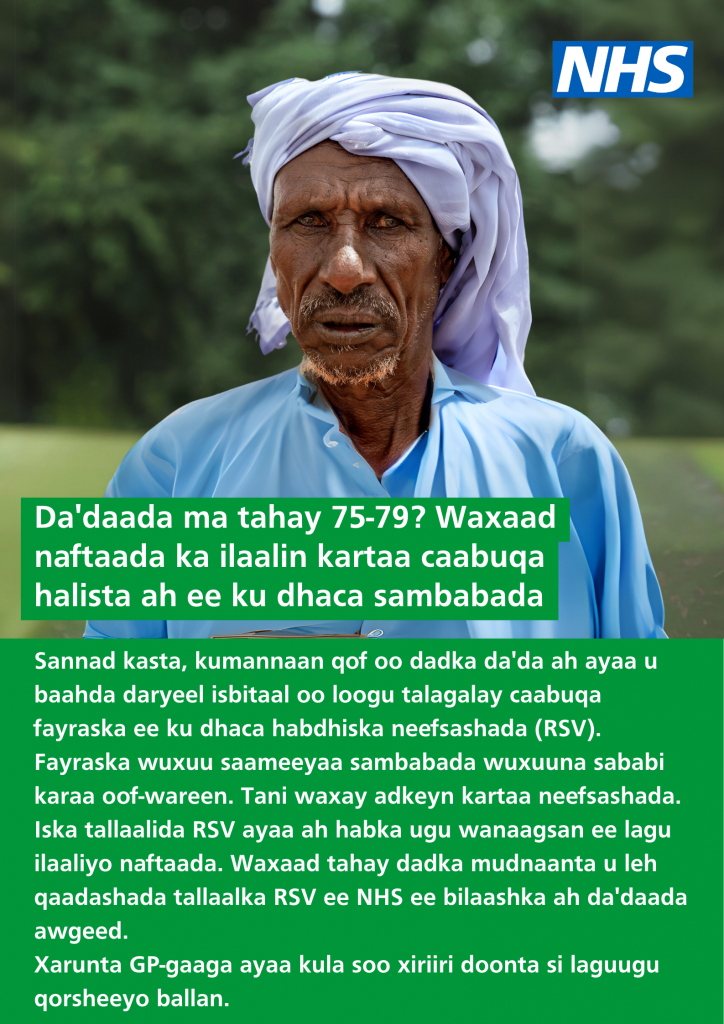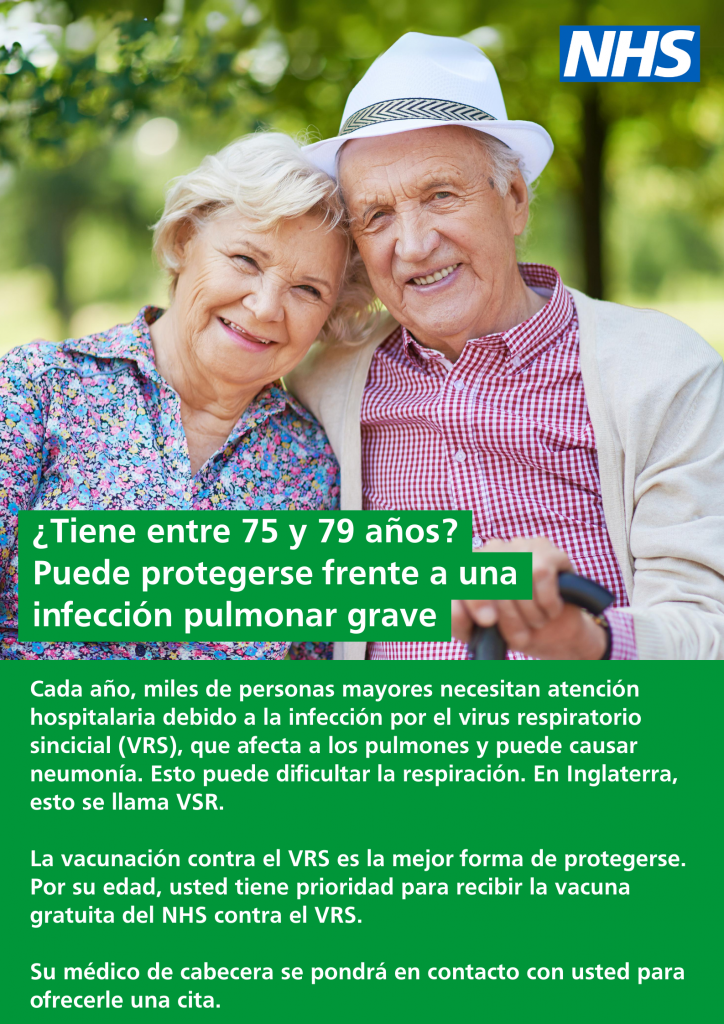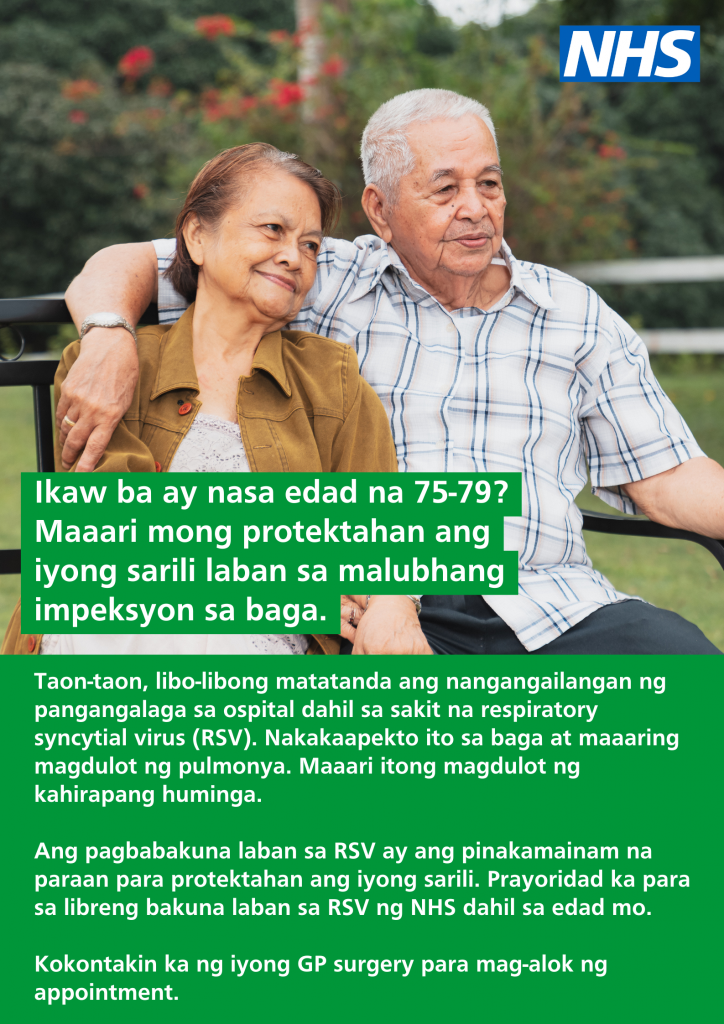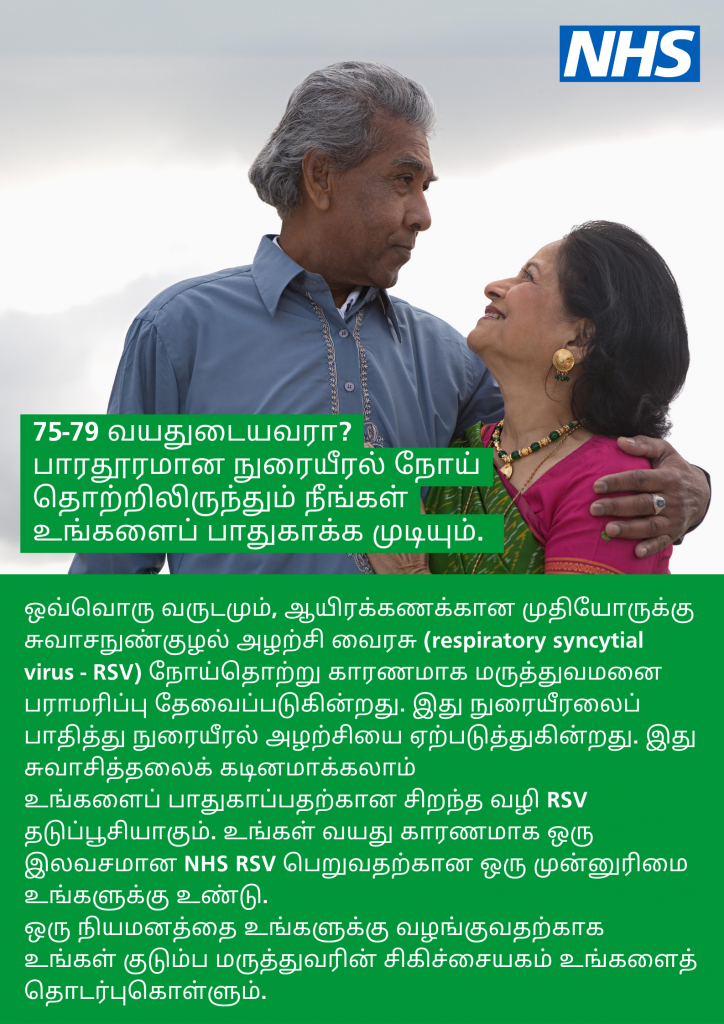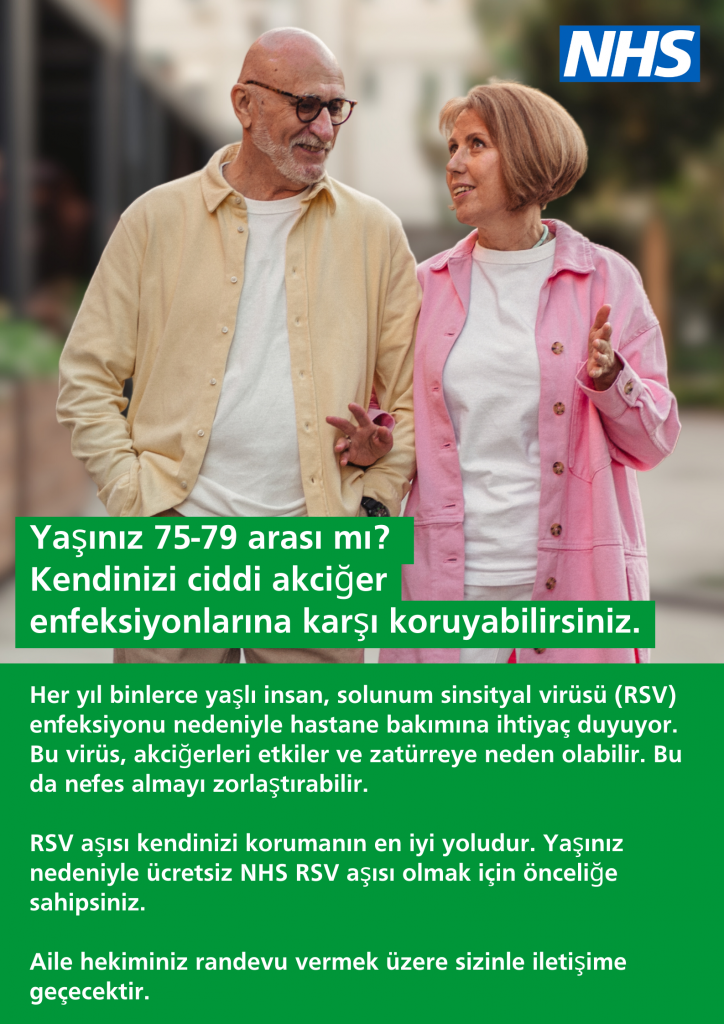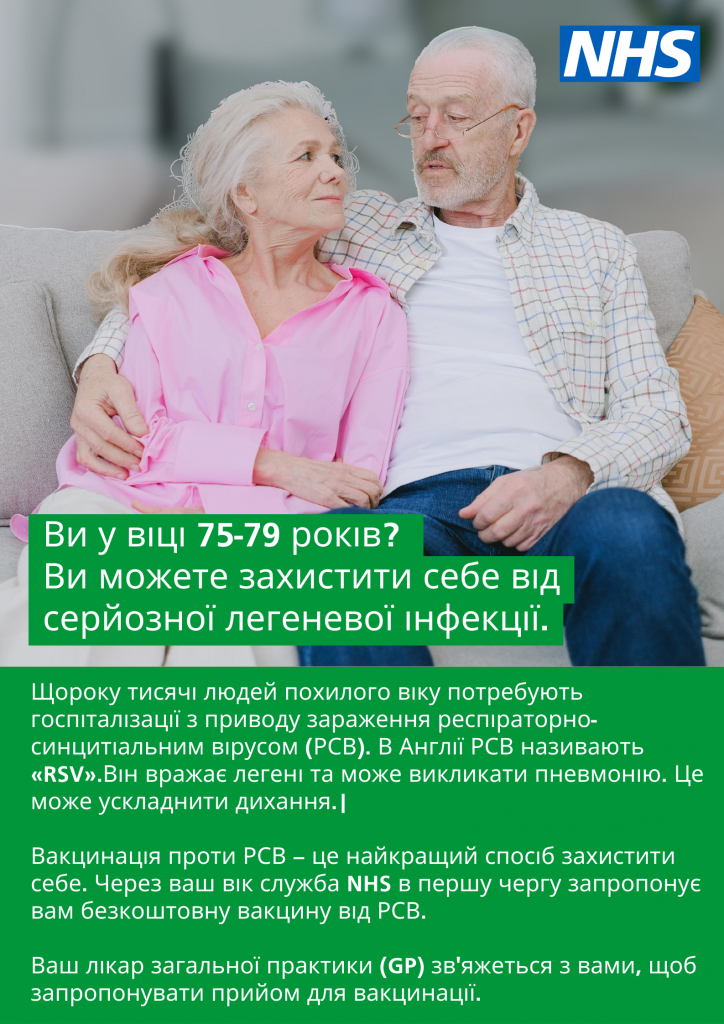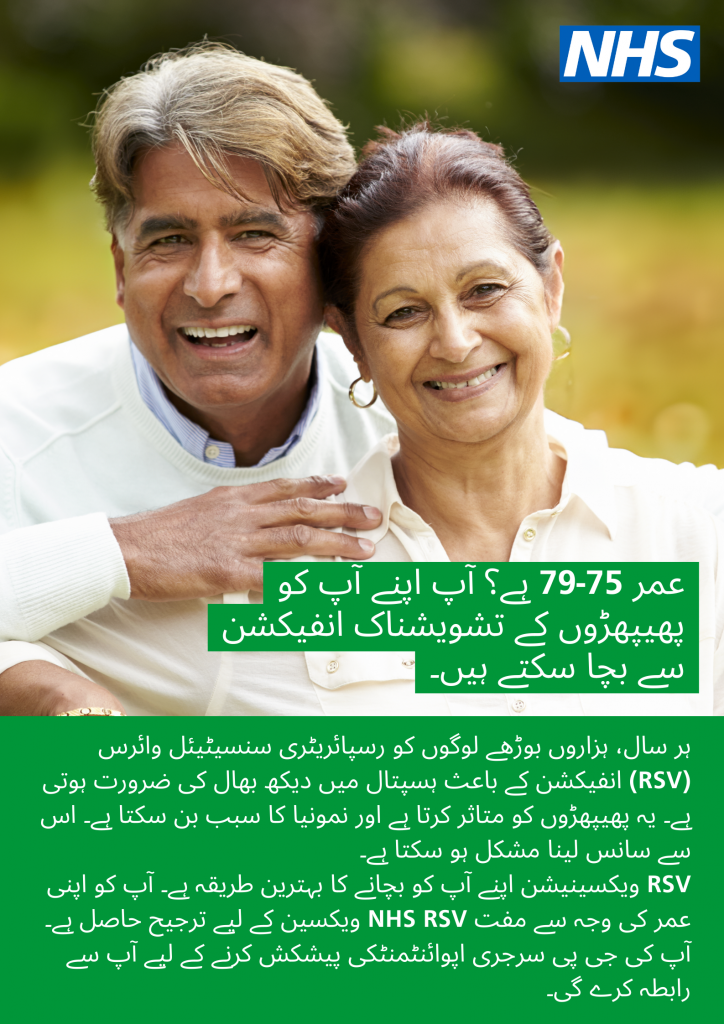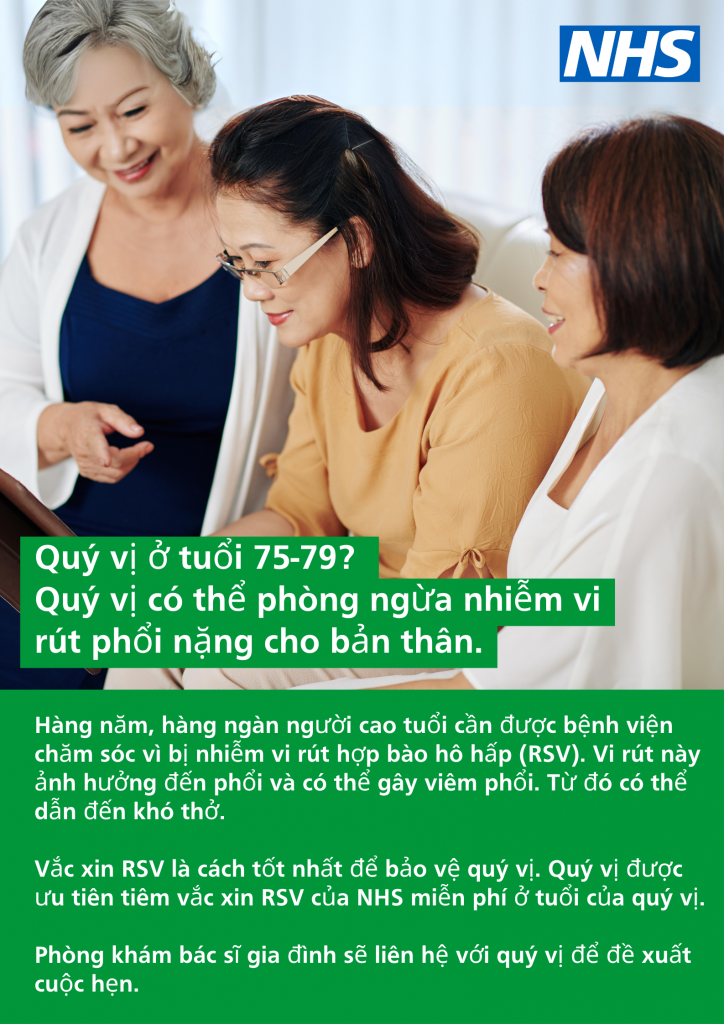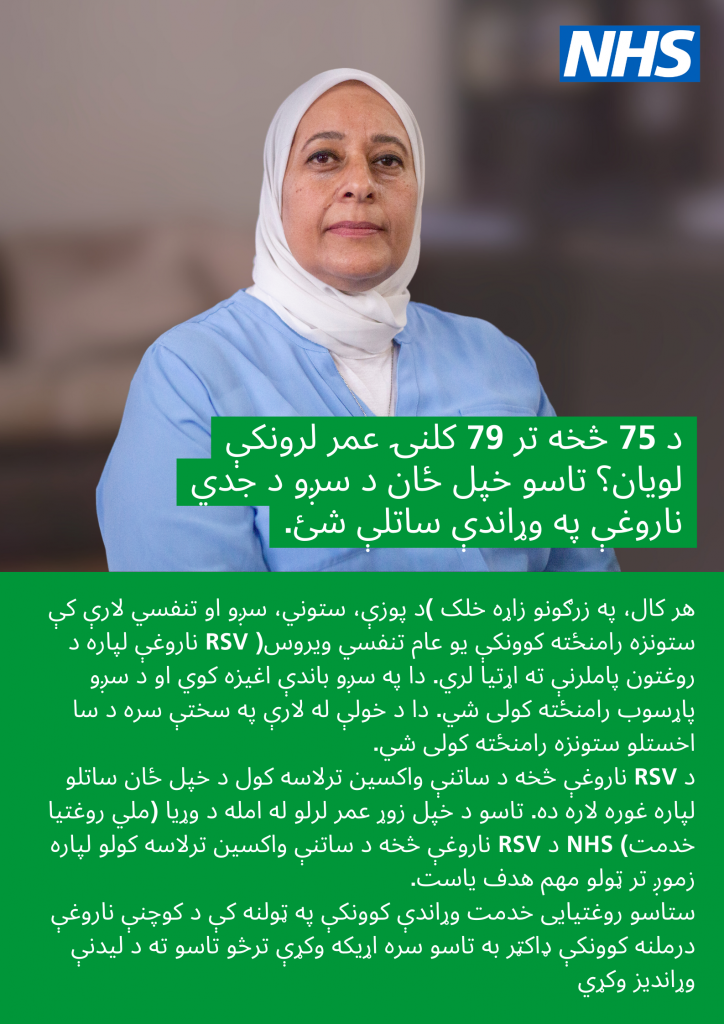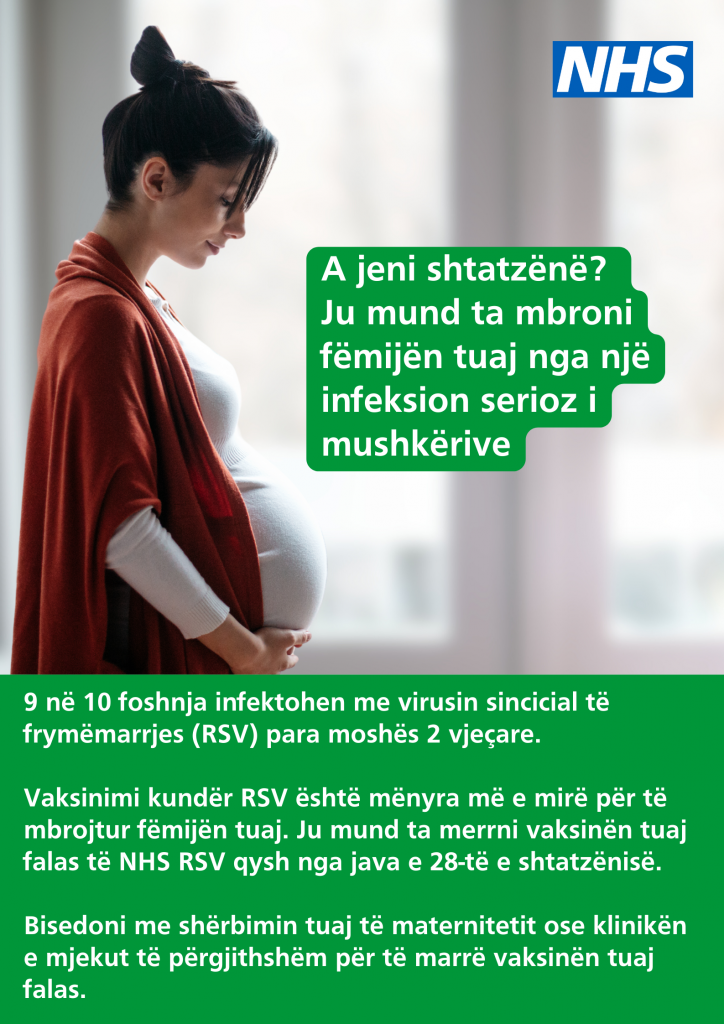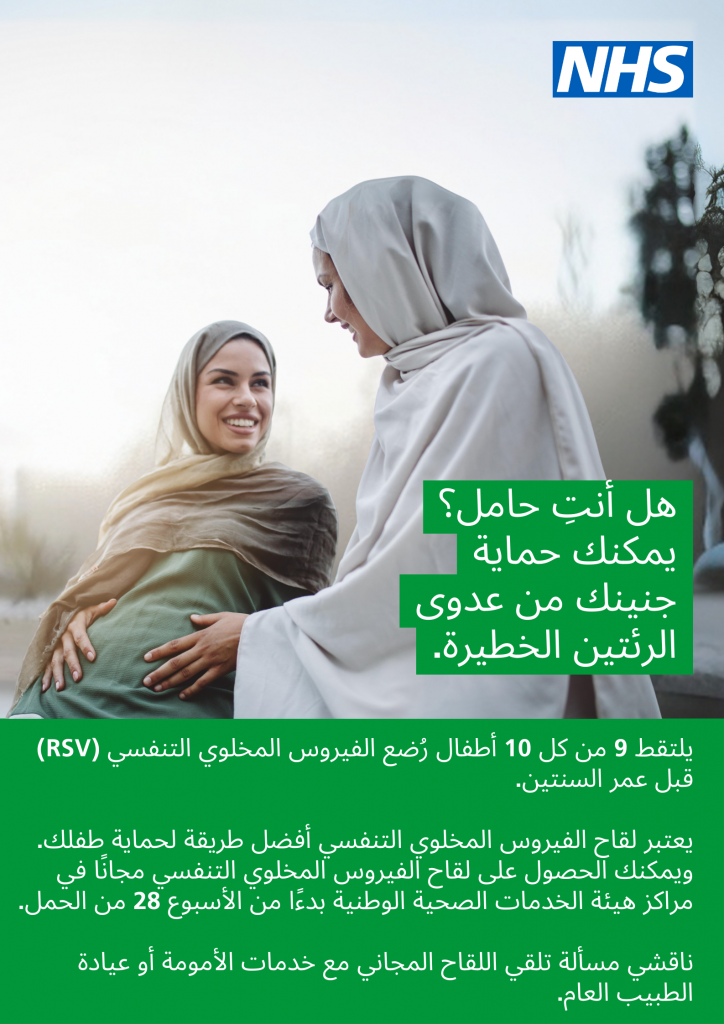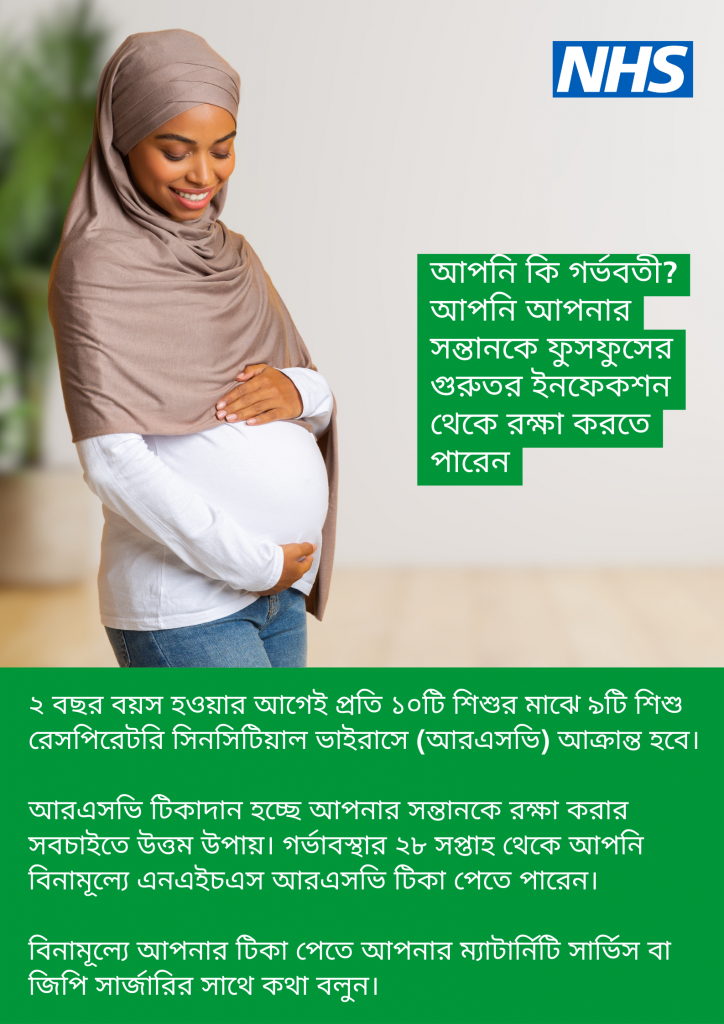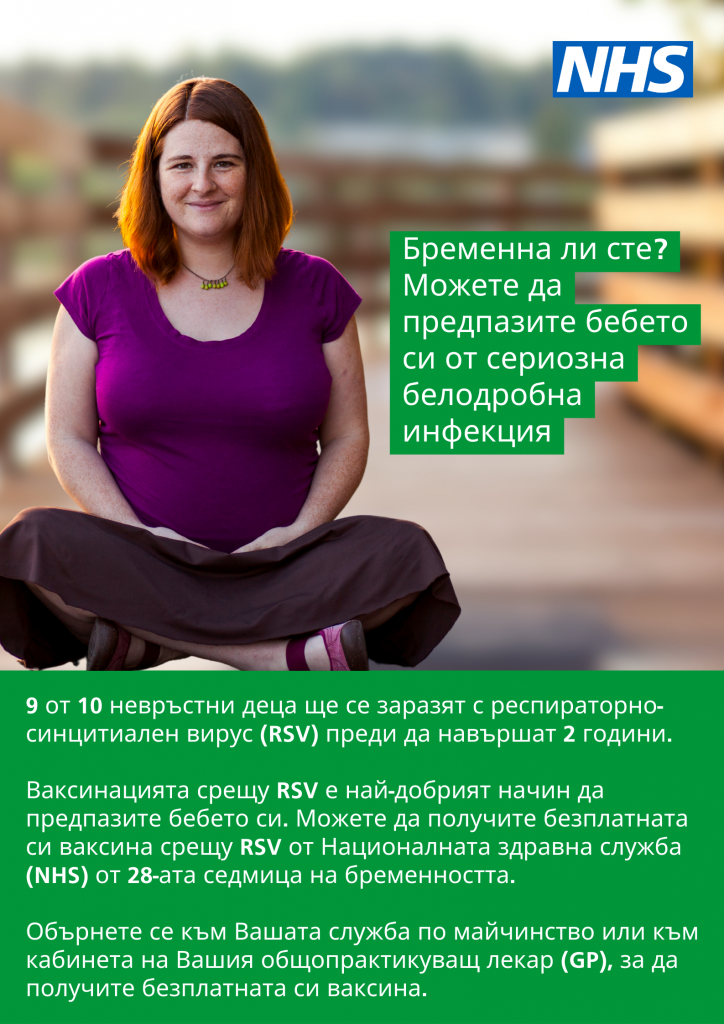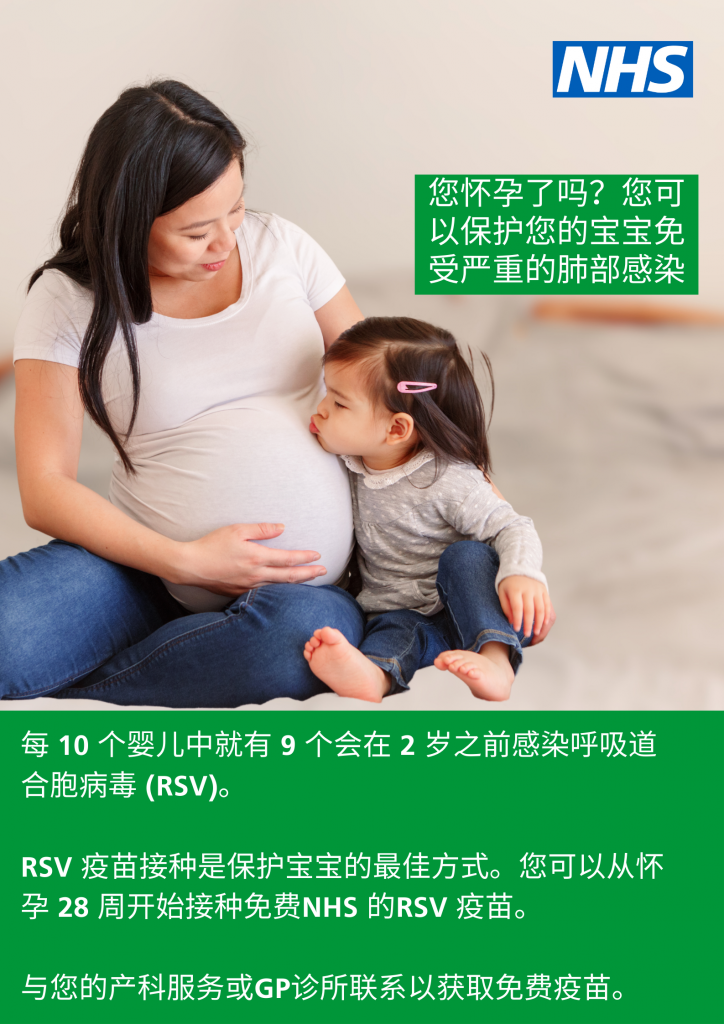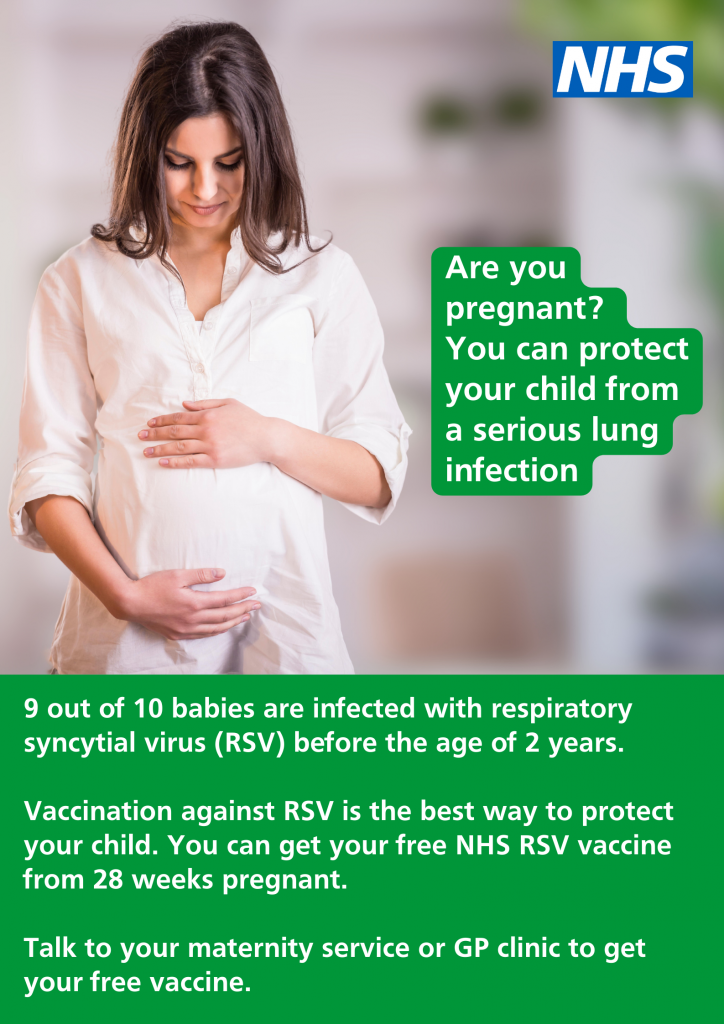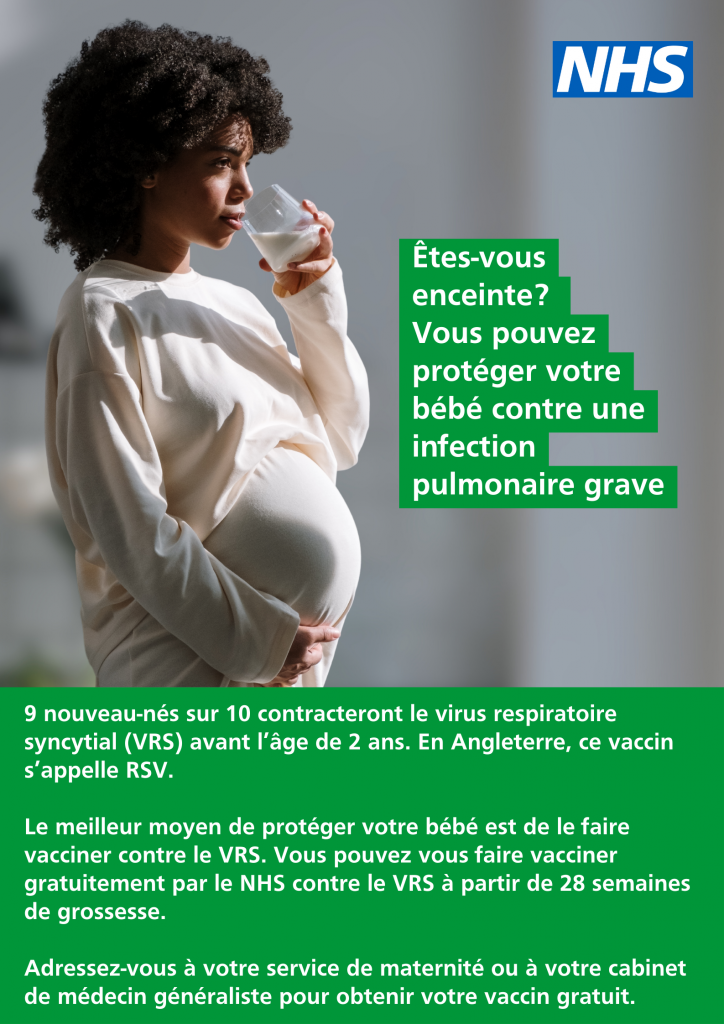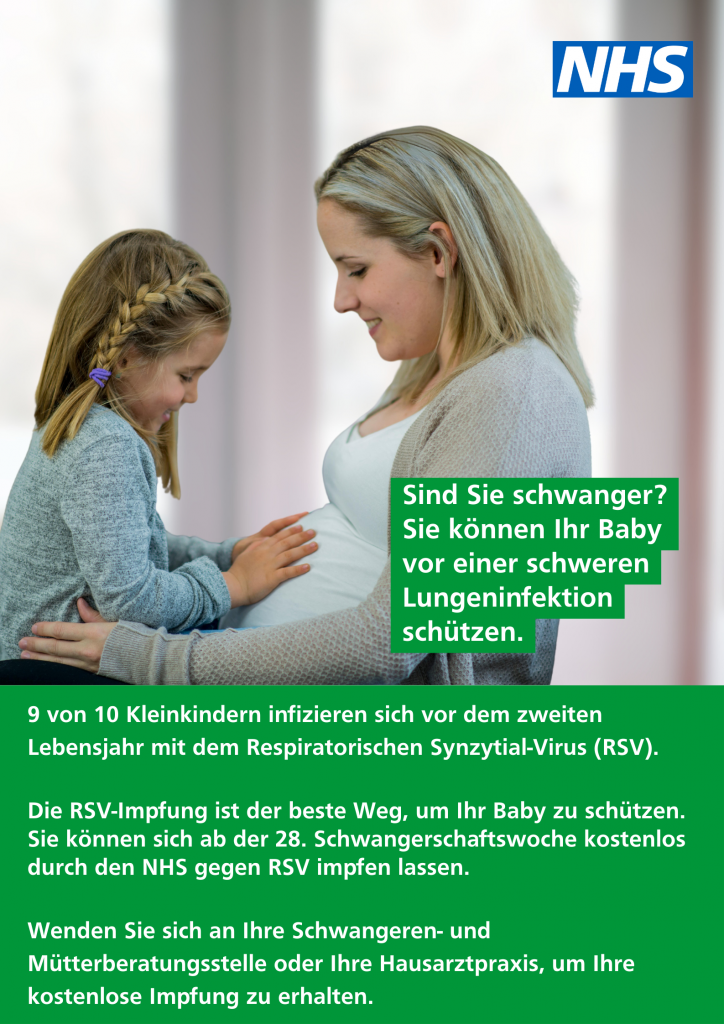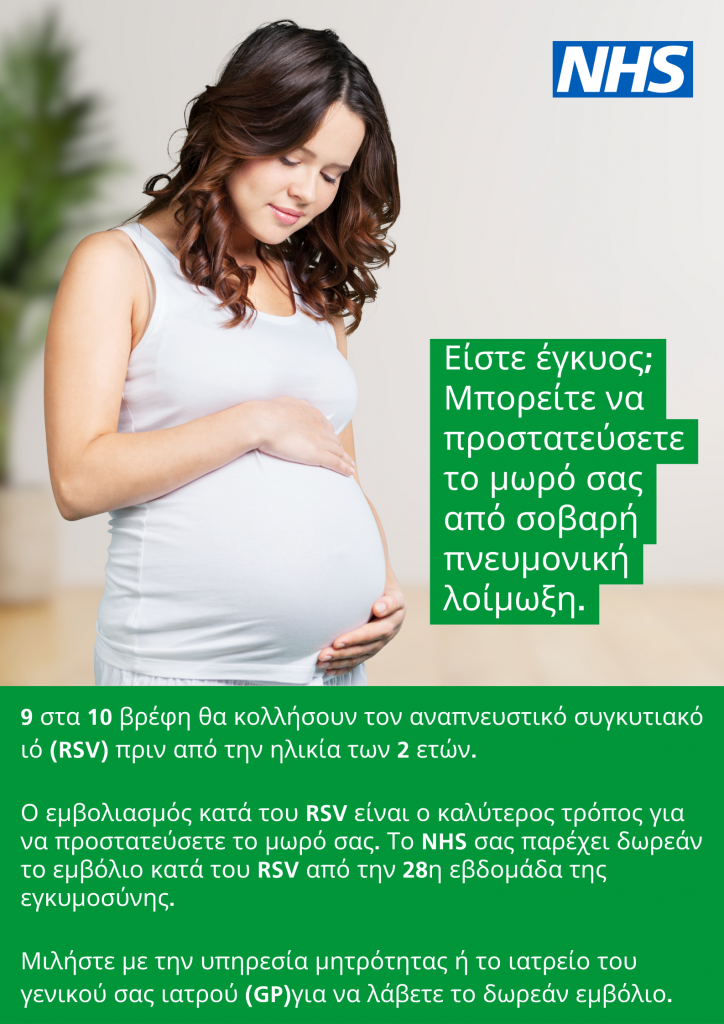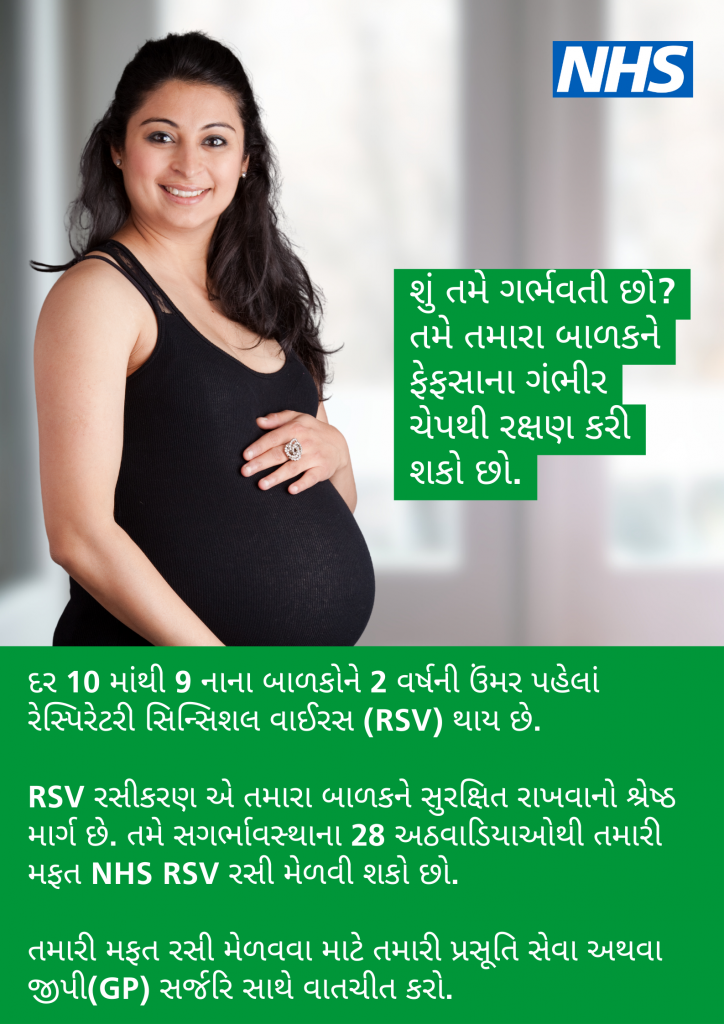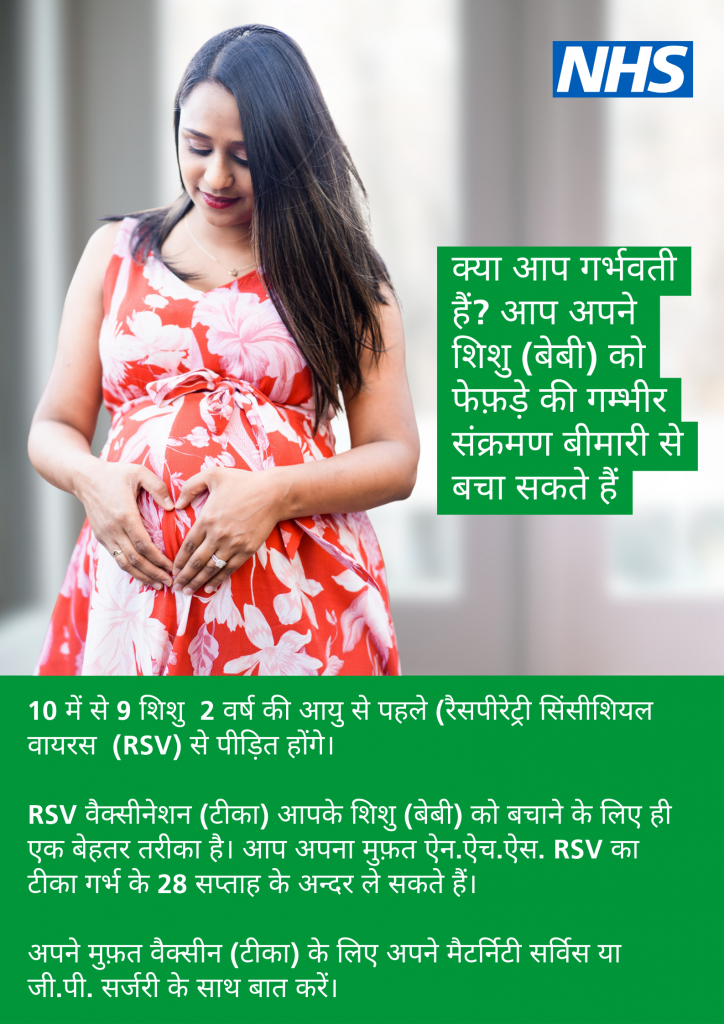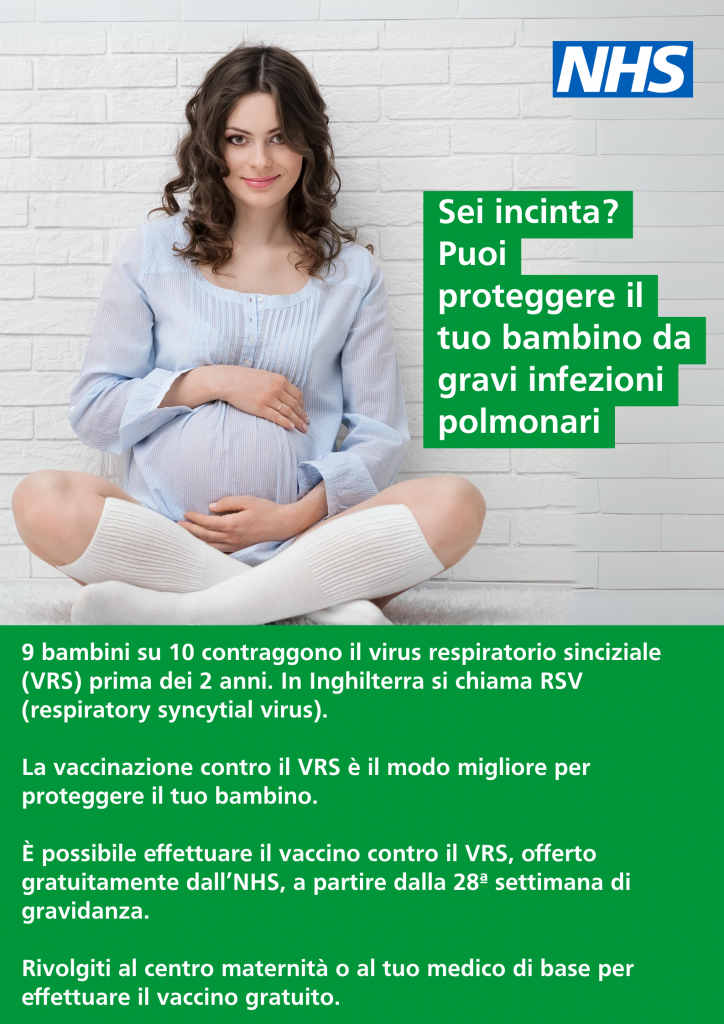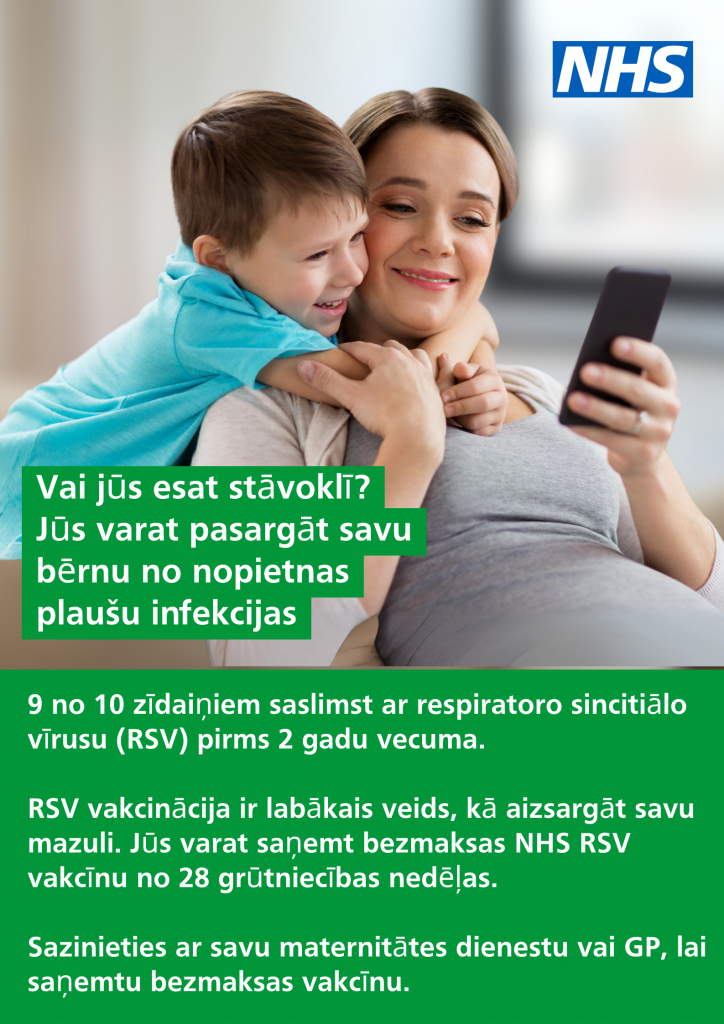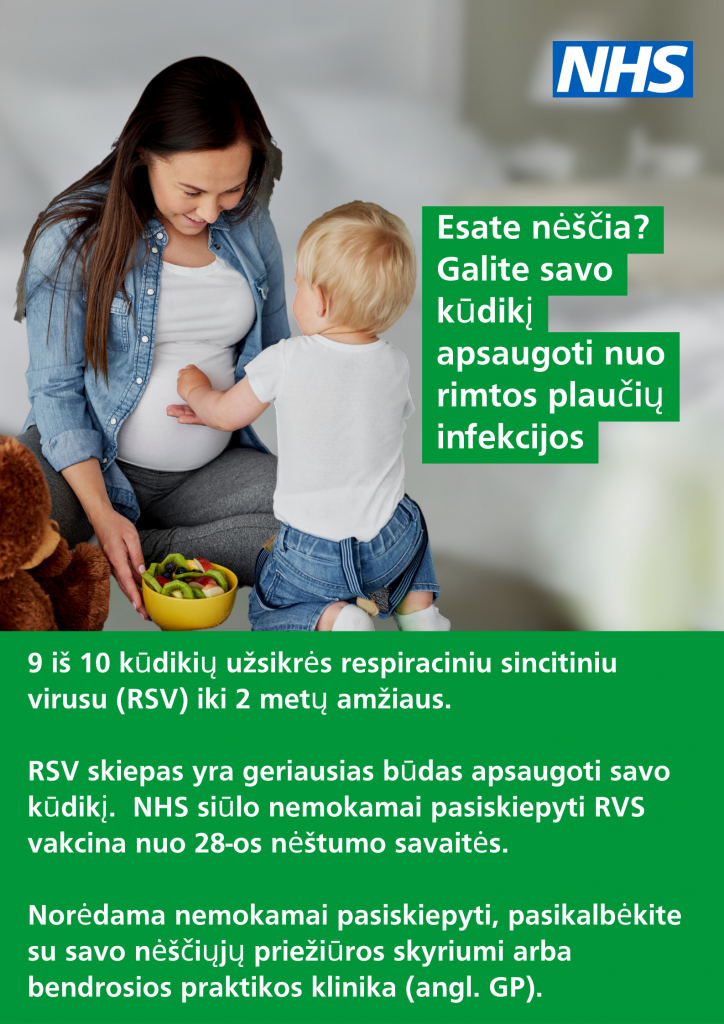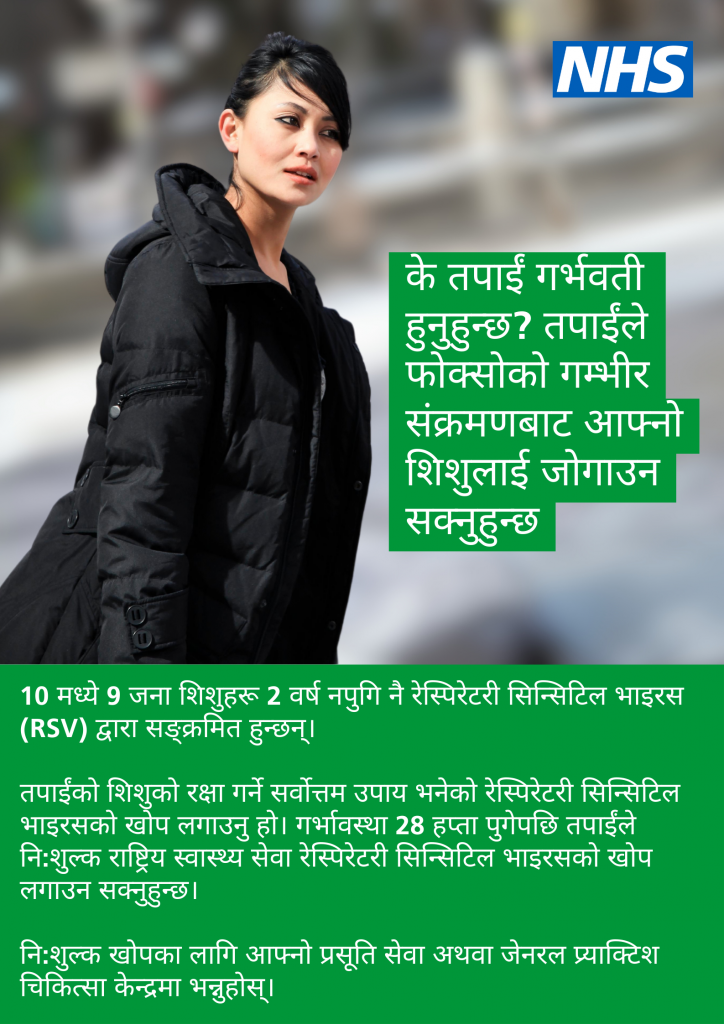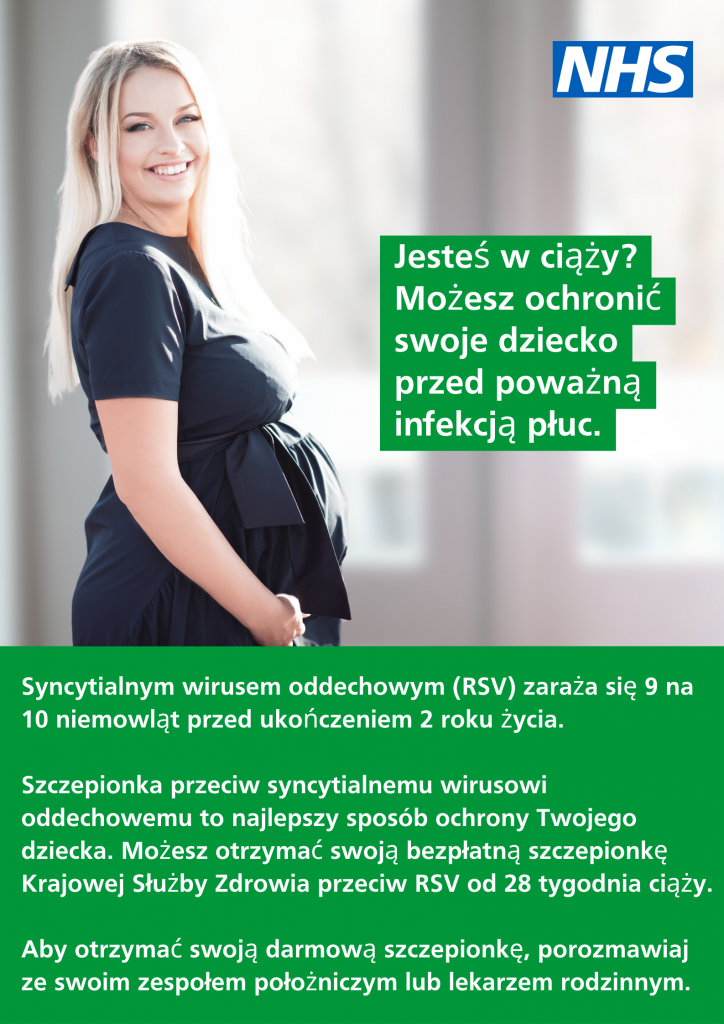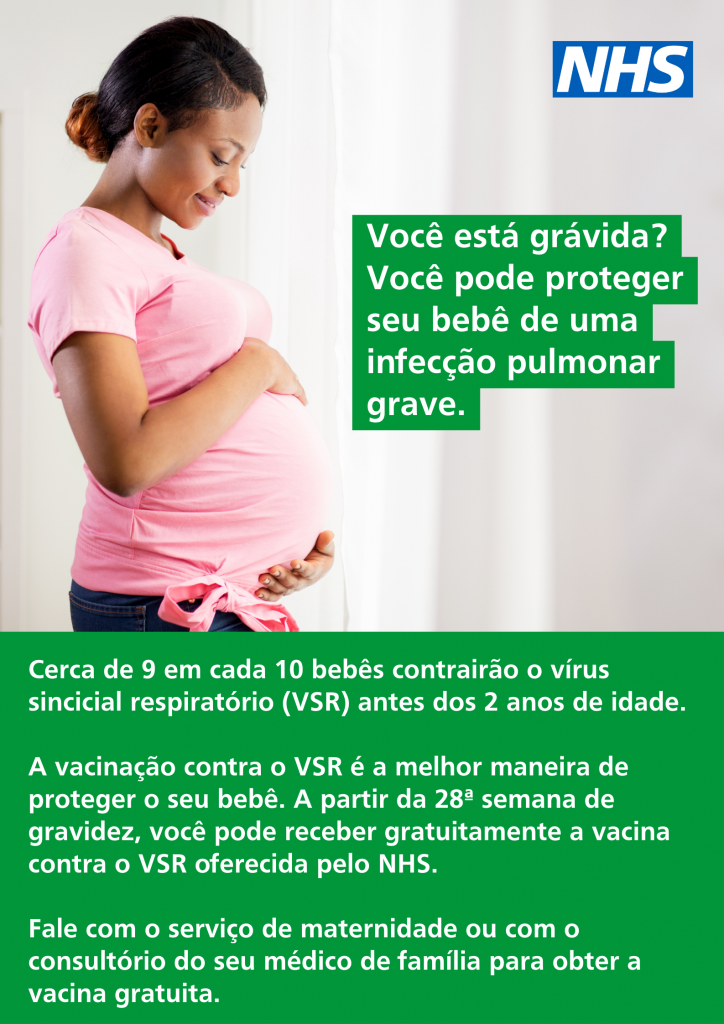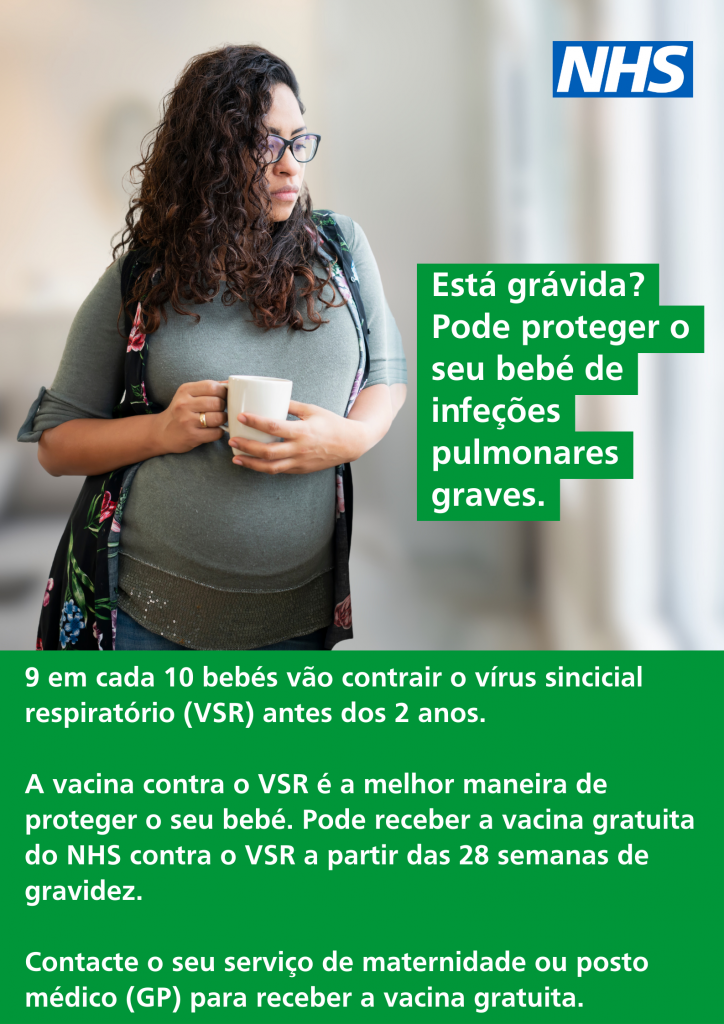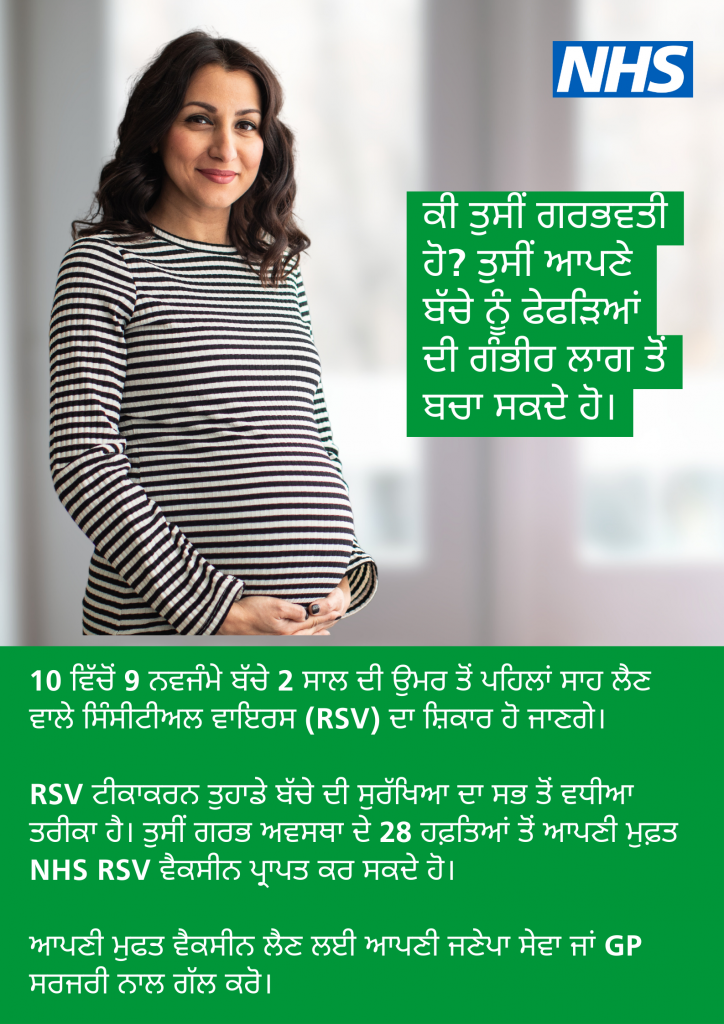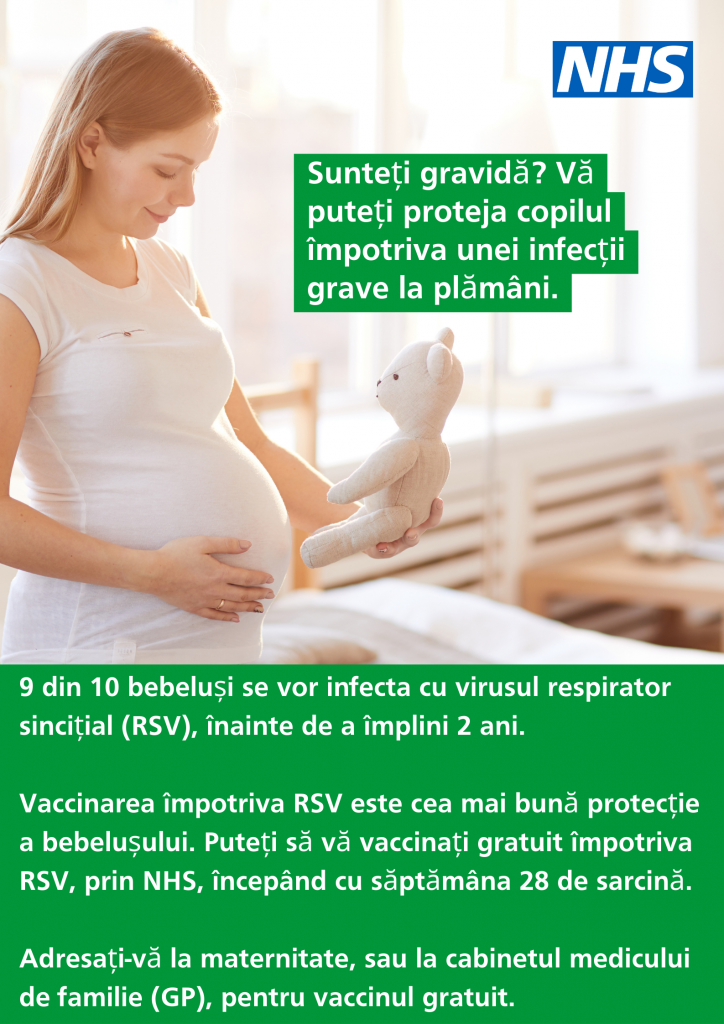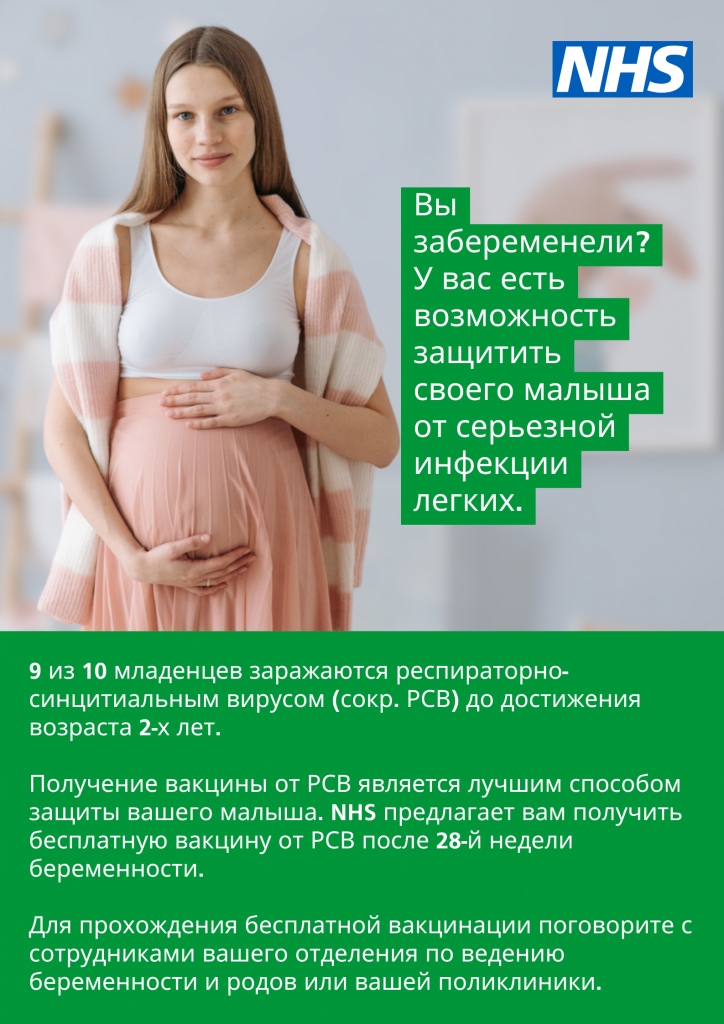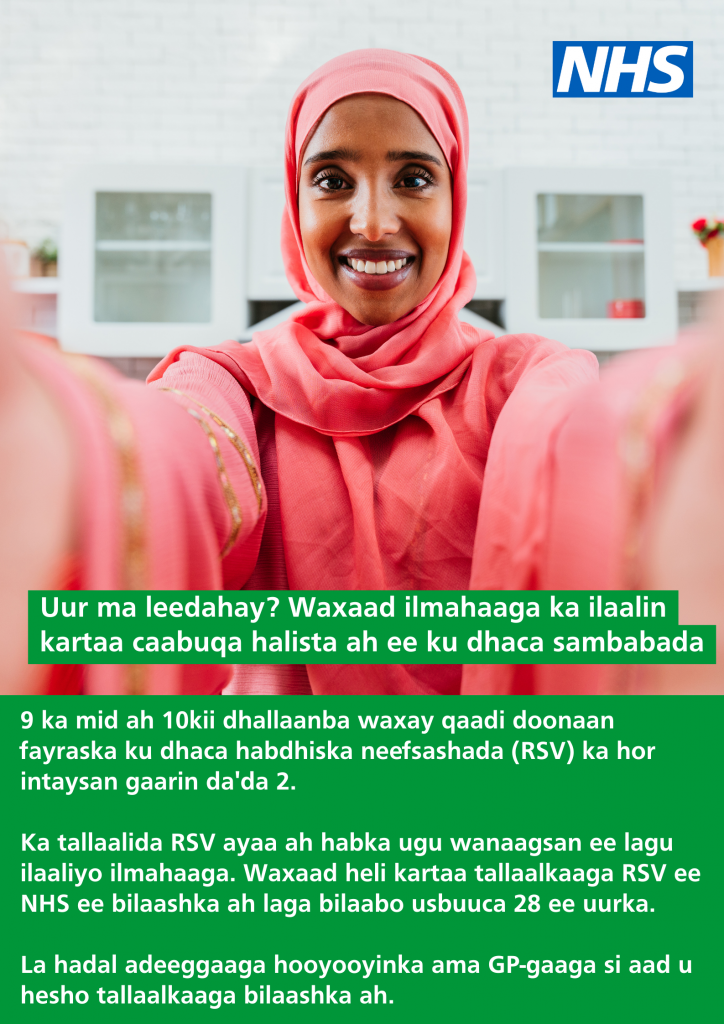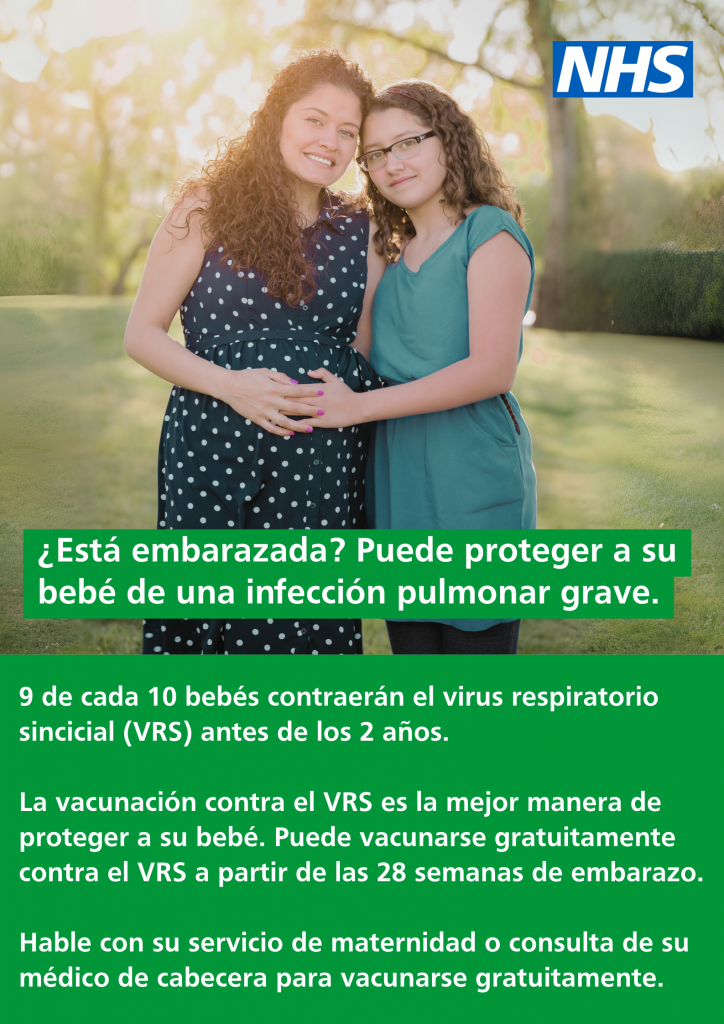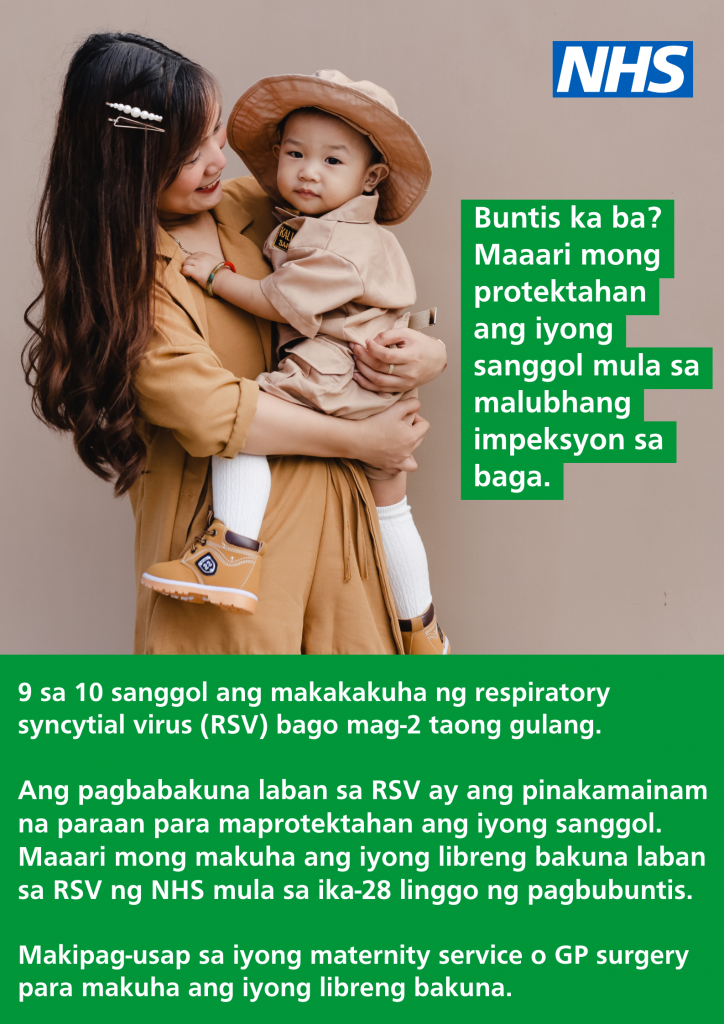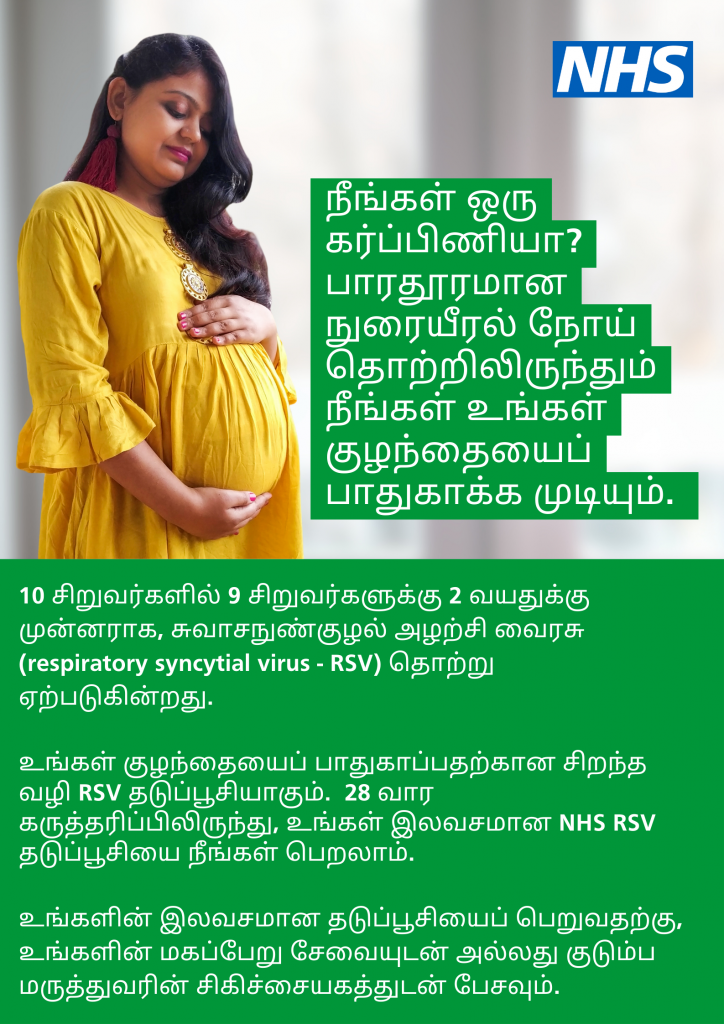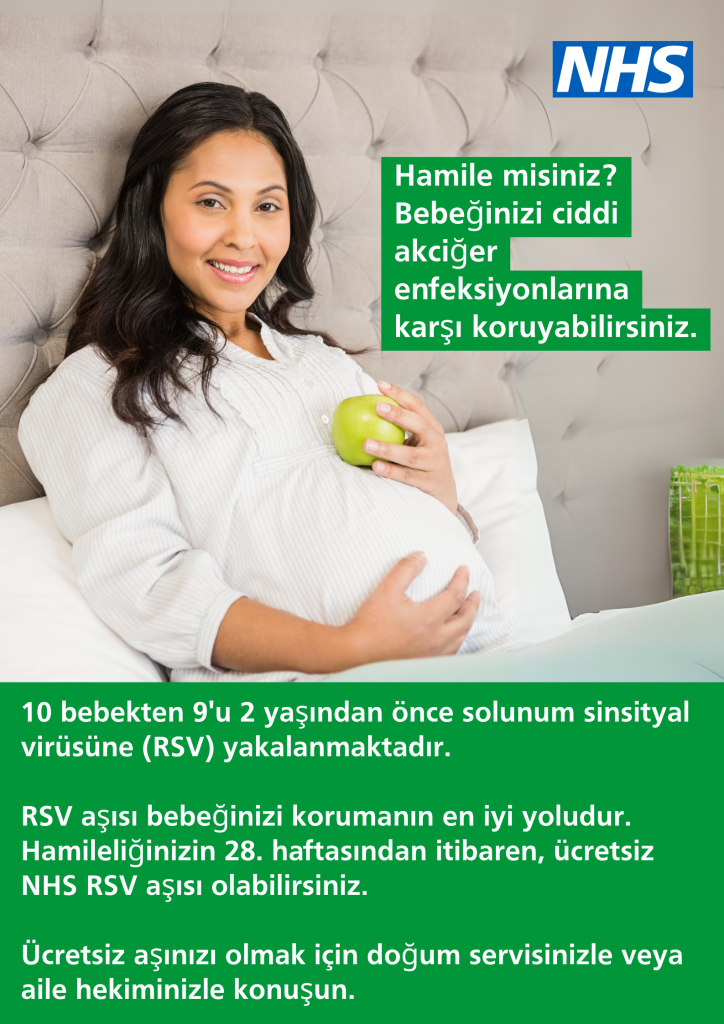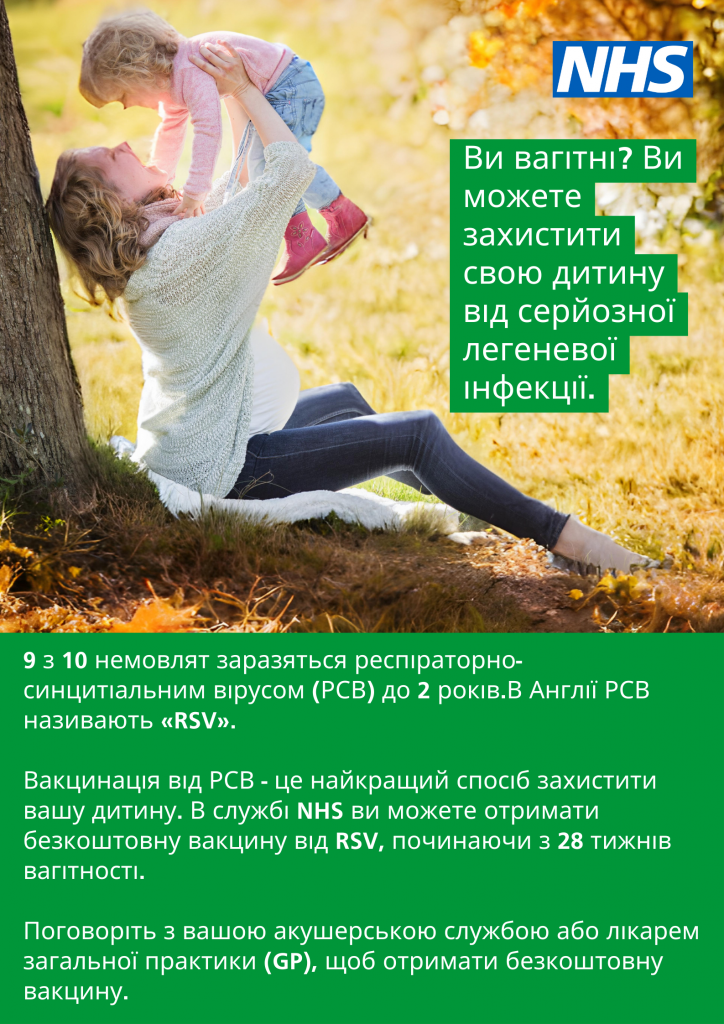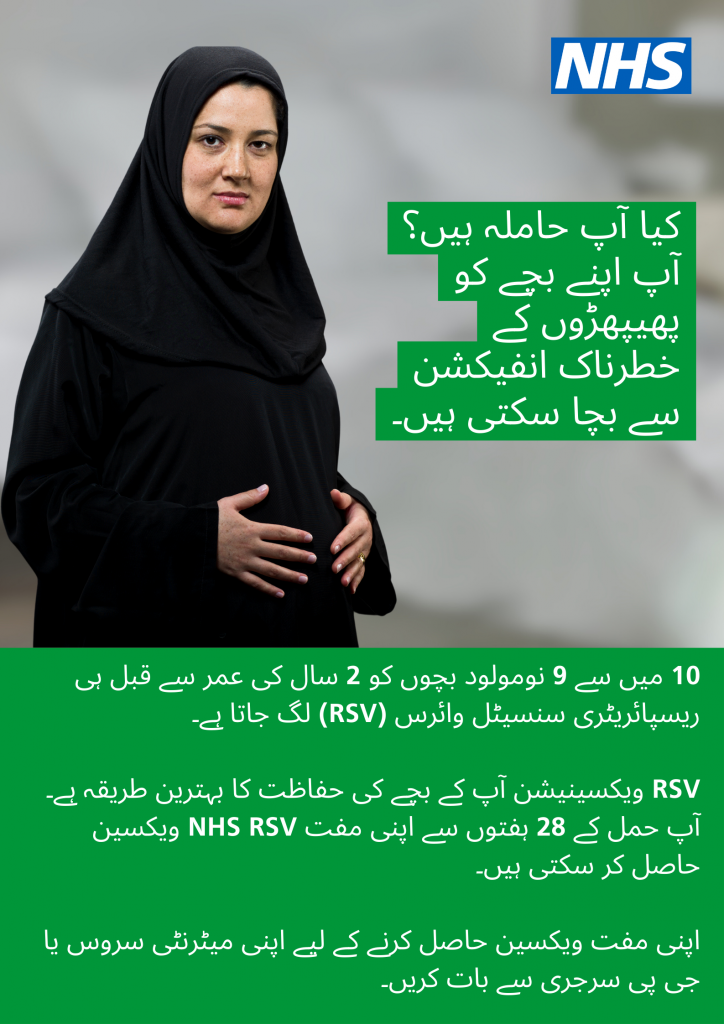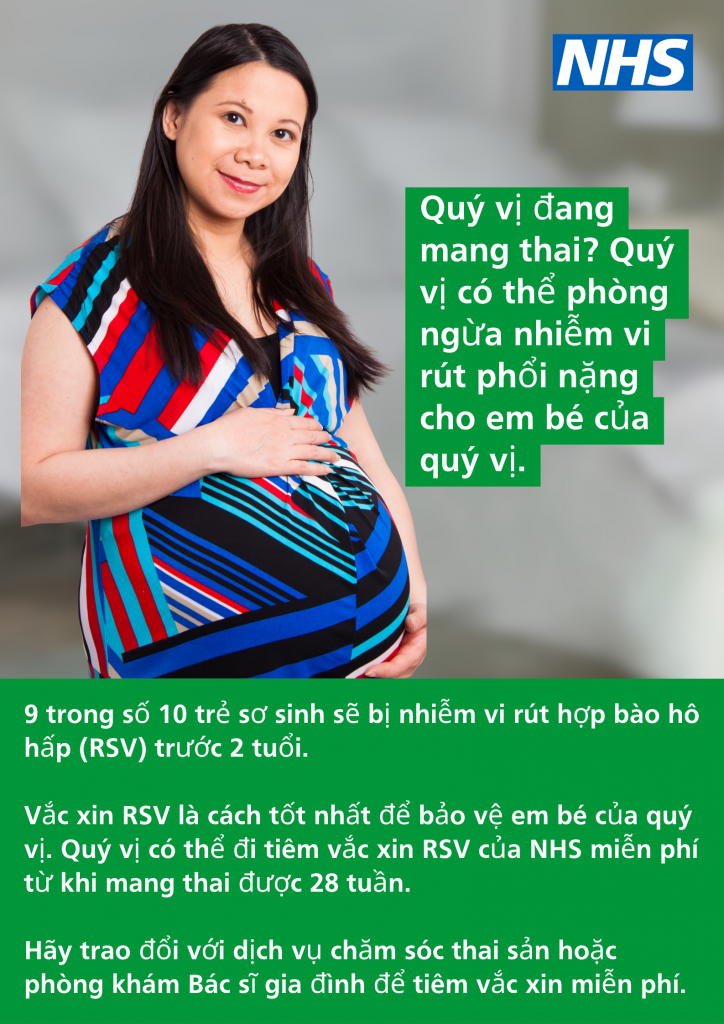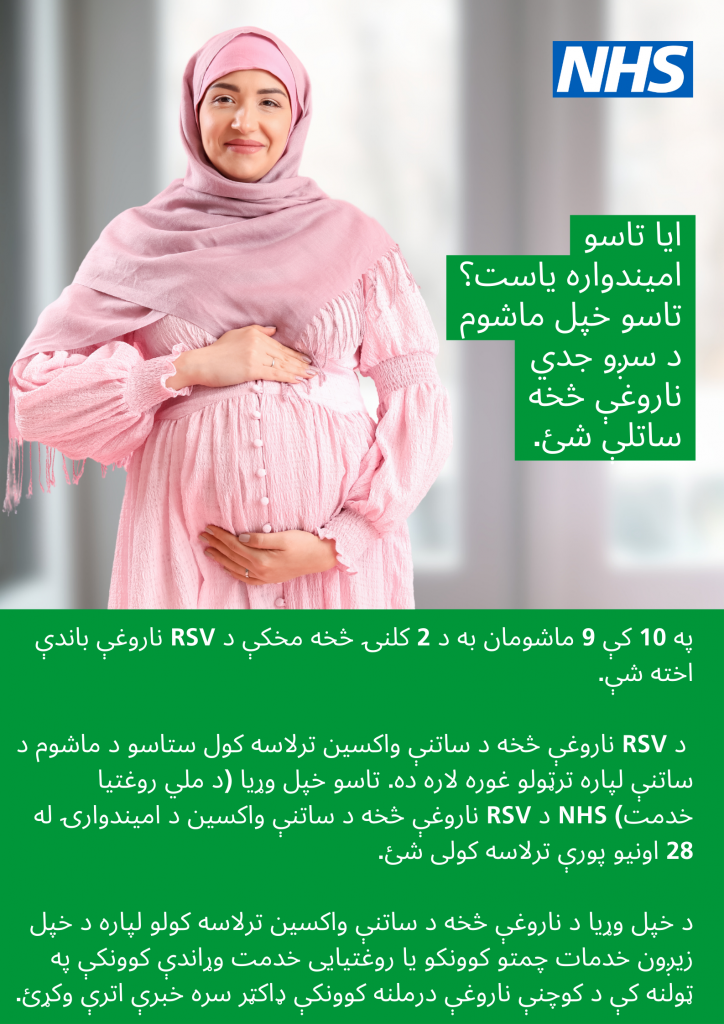From September 2024, a new vaccine for respiratory syncytial virus (RSV) will be available to older adults aged 75-79 years old, and to pregnant women (from 28 weeks) to protect their baby.
Respiratory syncytial virus (RSV) is a common cause of coughs and colds. RSV infections usually get better by themselves, but can sometimes be serious for babies and older adults.
Who’s at risk?
RSV infections are very common. Almost all children get them at least once before they’re 2 years old.
They’re not usually serious, but some babies and adults have a higher risk of getting seriously ill, particularly:
- babies under 6 months old
- young children who were born prematurely
- adults over 75 years
- babies, children and adults with a weakened immune system, or long-term lung or heart conditions
- people who smoke tobacco and babies exposed to tobacco smoke
In babies, RSV is a common cause of a type of chest infection called bronchiolitis. This can cause breathing problems and may need to be treated in hospital.
RSV can also cause a serious lung infection (pneumonia) in babies and older adults.
How to avoid catching and spreading RSV
RSV is spread in the coughs and sneezes of someone who has the virus.
There are some things you can do to reduce your chances of getting it or spreading it to anyone else, such as:
- wash or wipe down toys and clean surfaces regularly
- try to avoid touching your eyes, nose or mouth if your hands are not clean
- use disposable tissues and throw them away as soon as you’ve used them
- try to keep newborn babies away from anyone with a cold or the flu – especially if they were born prematurely or have serious health conditions
RSV vaccination
The RSV vaccine is recommended if:
- you’re pregnant (from 28 weeks of pregnancy) – this will help protect your baby for the first few months after they’re born
- you’re aged 75 to 79
The vaccine helps reduce the risk of RSV causing serious problems such as pneumonia and bronchiolitis.
If you’re aged 75 to 79, your GP surgery will contact you about getting vaccinated.
If you’re 28 weeks pregnant or more, you can speak to your maternity service or GP surgery about getting vaccinated.
For more information, go to: Respiratory syncytial virus (RSV) – NHS
RSV Vaccination – Translated Posters
